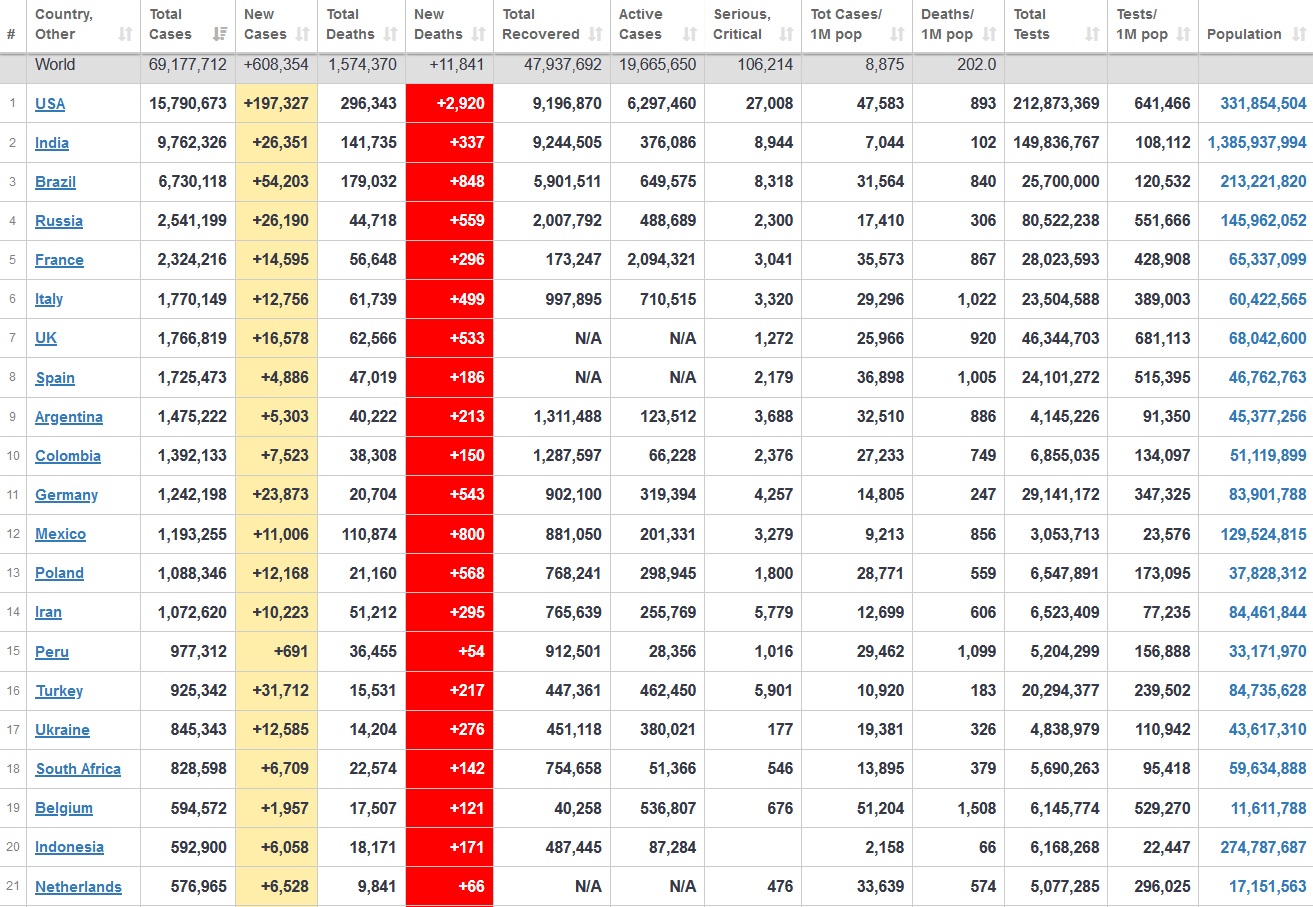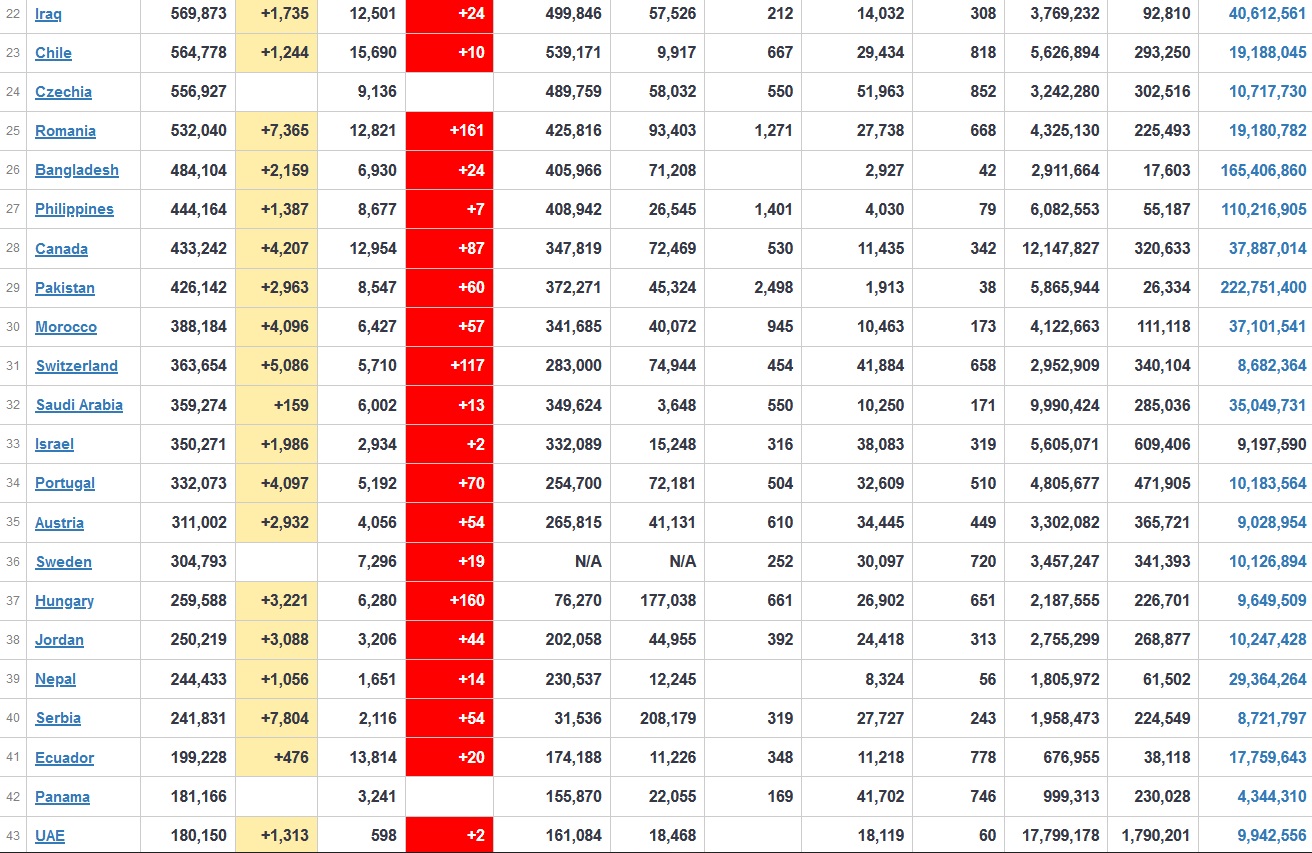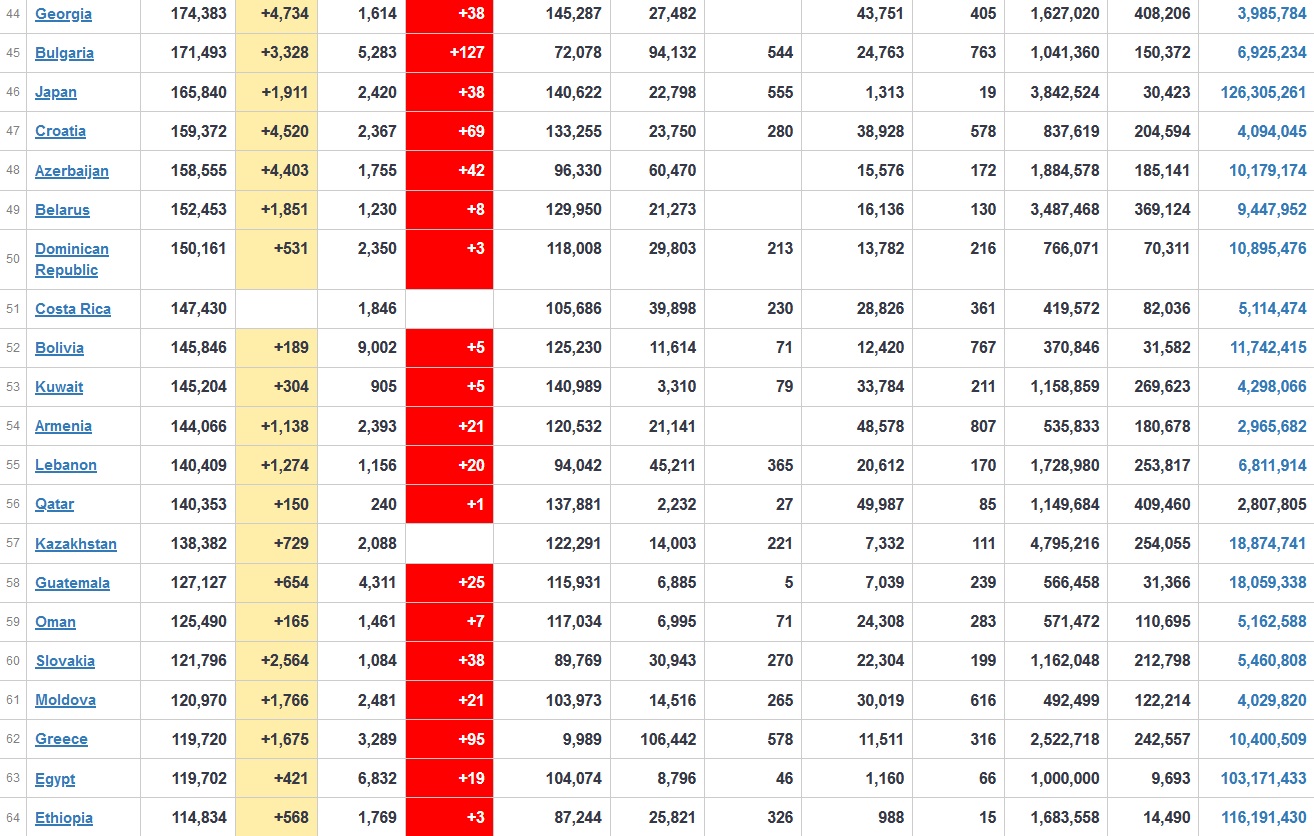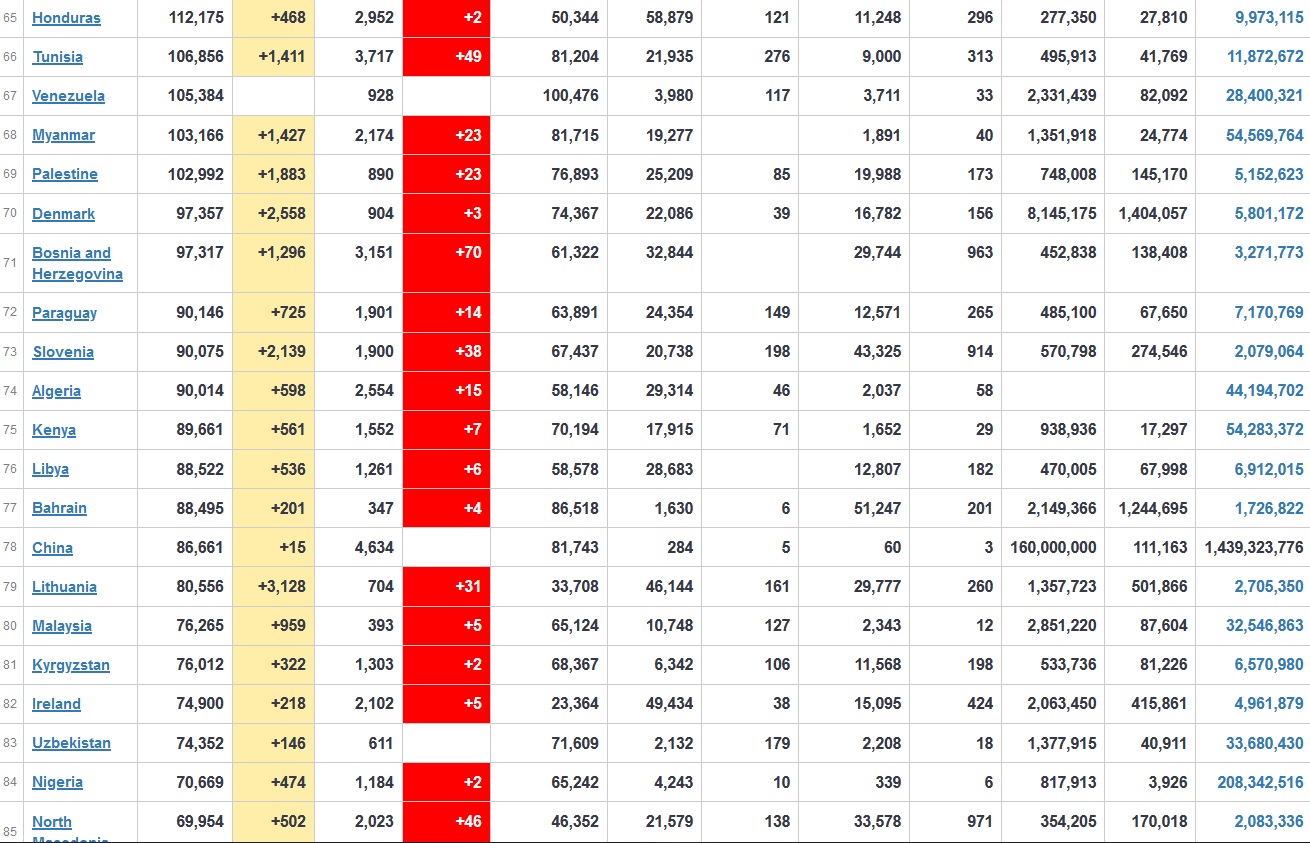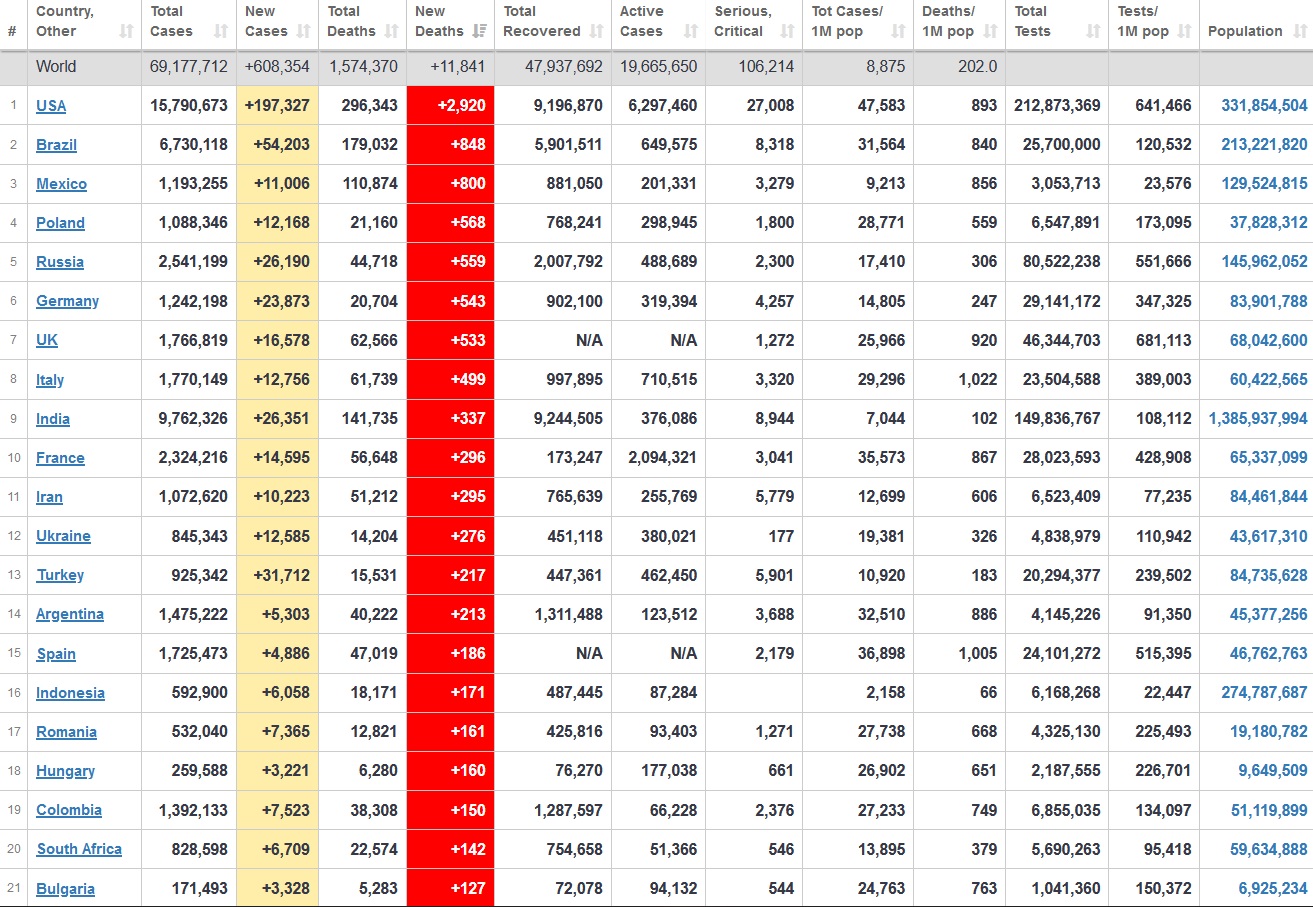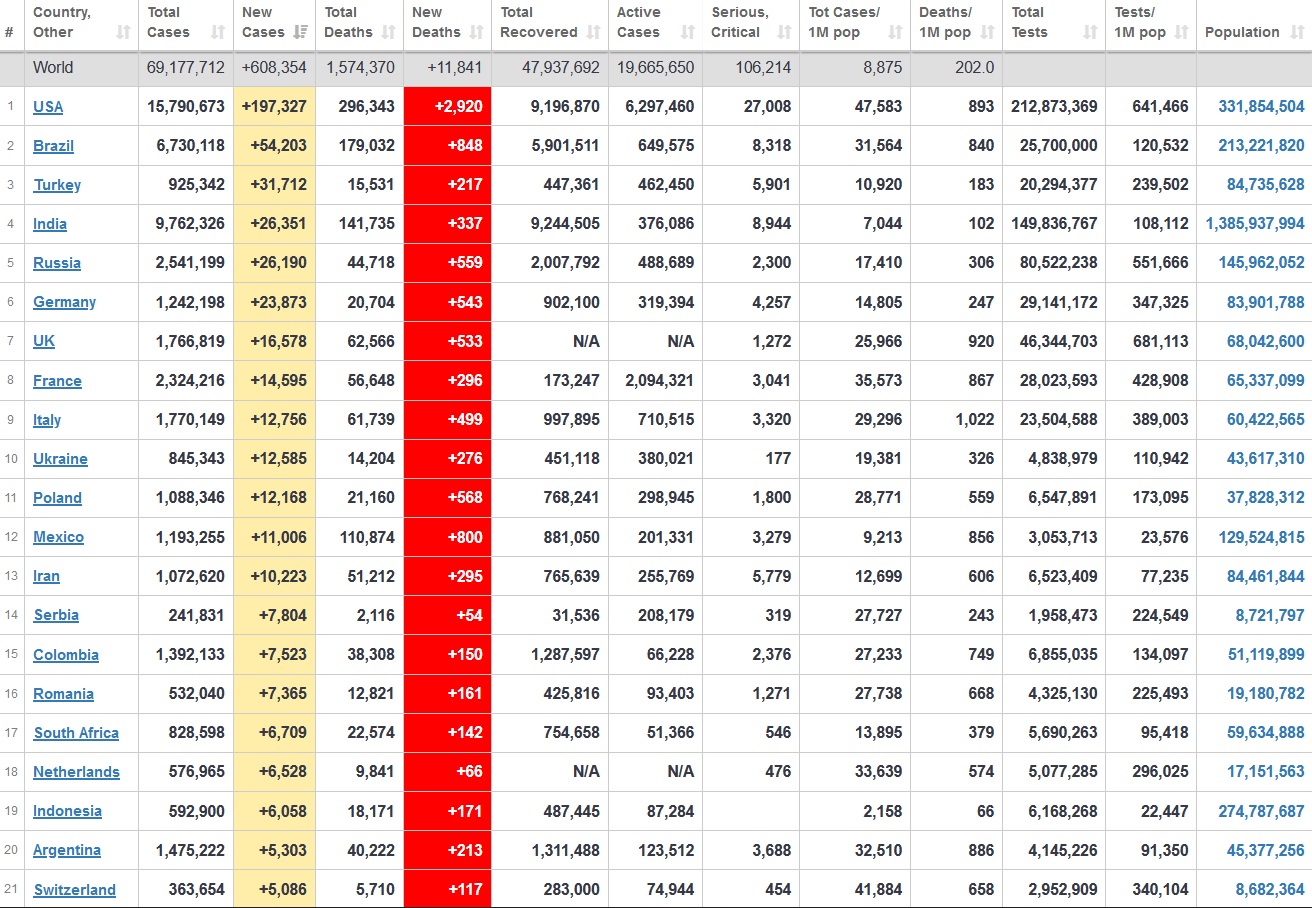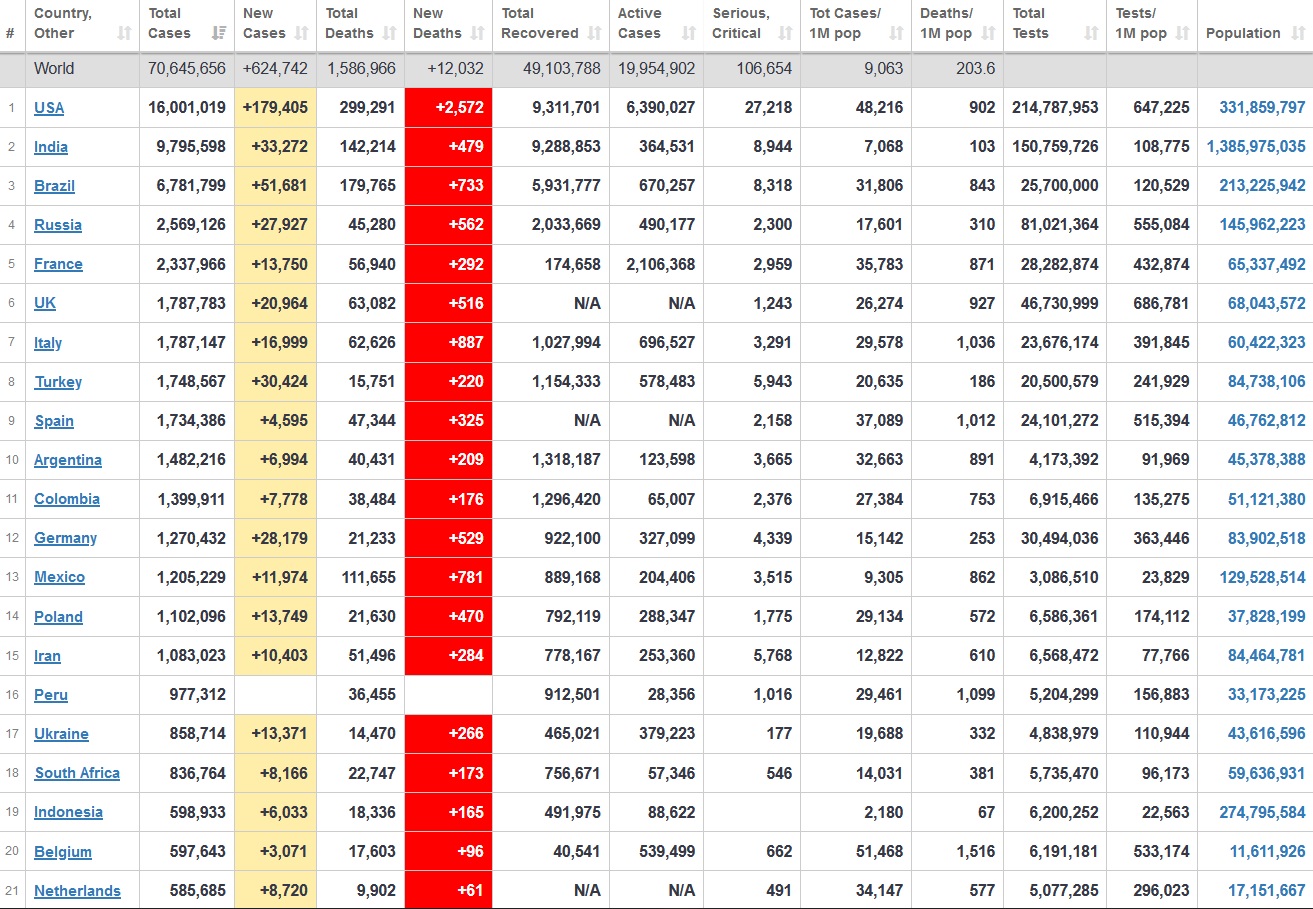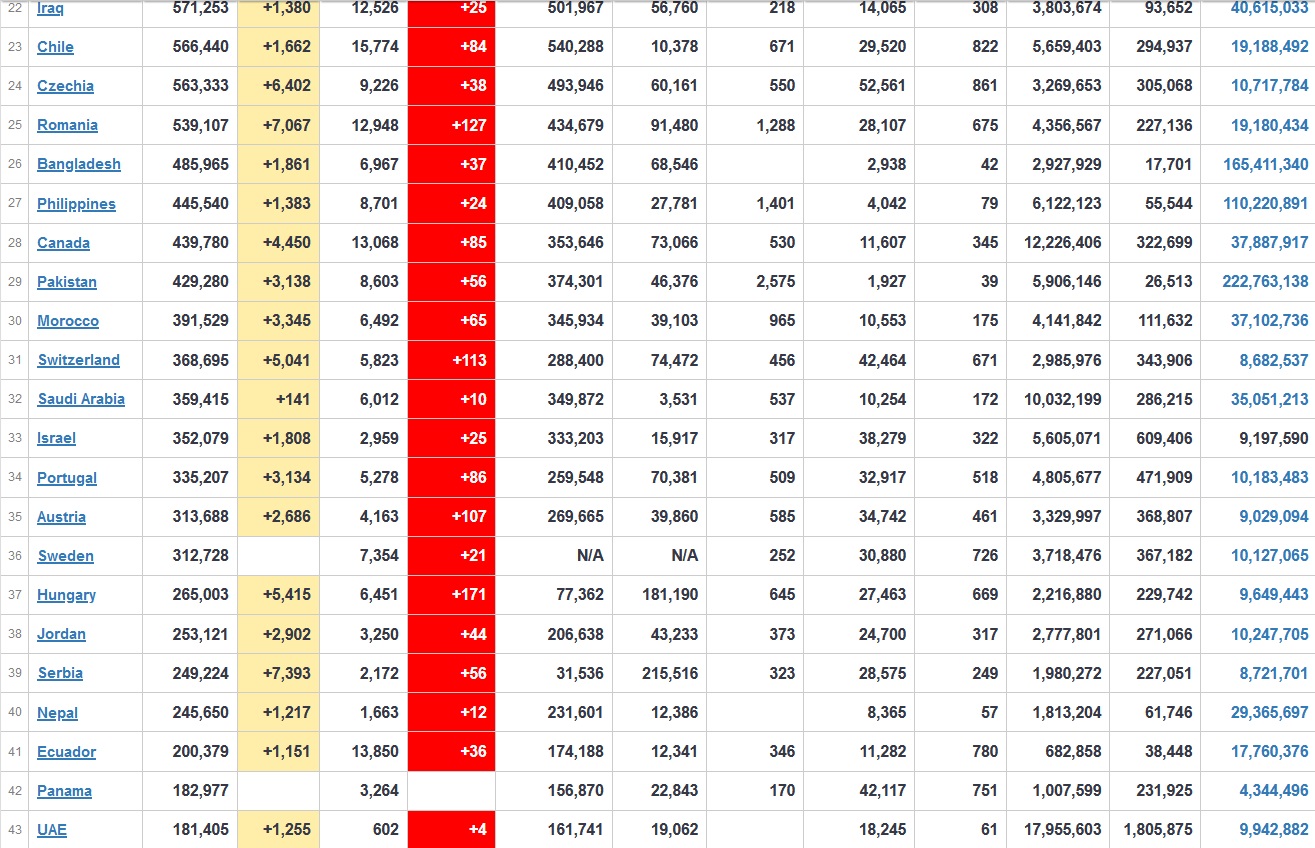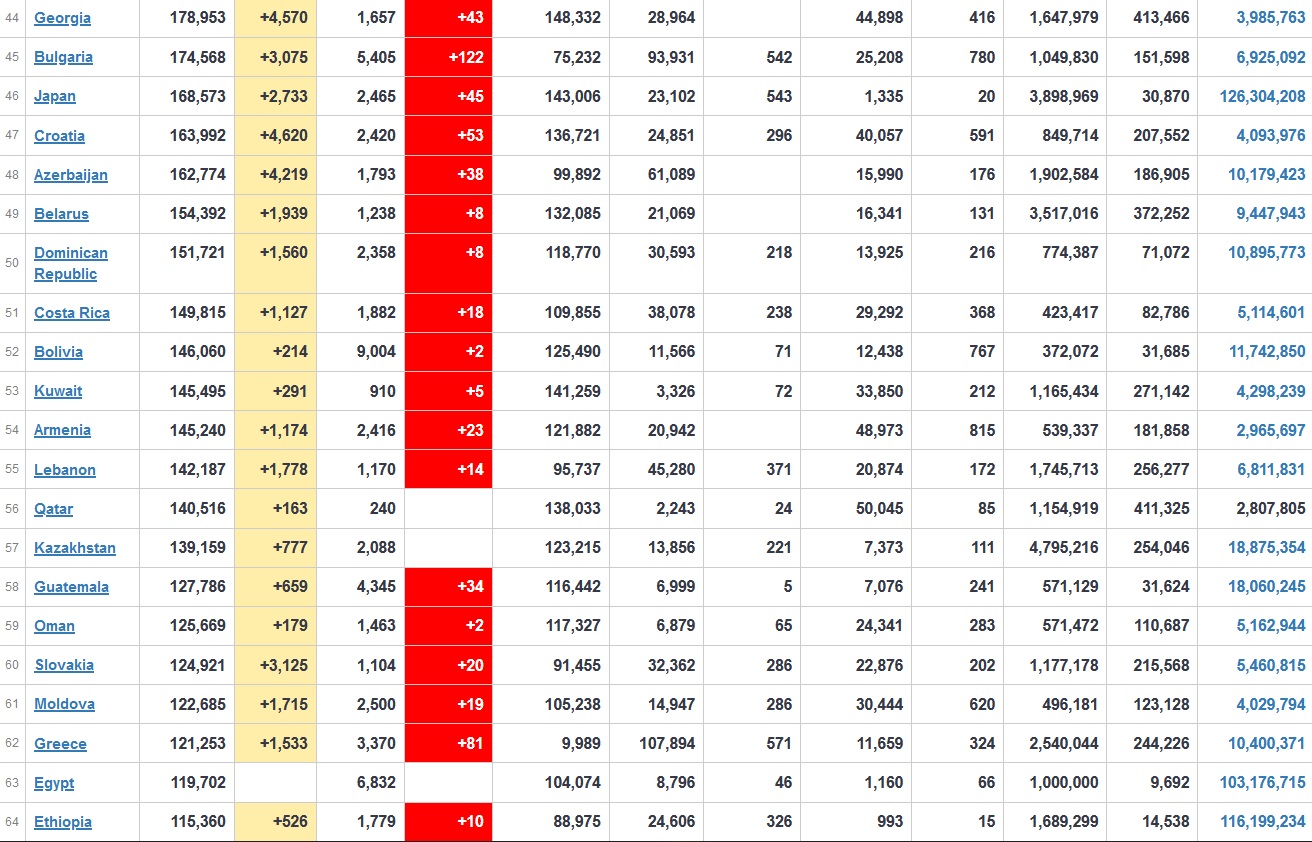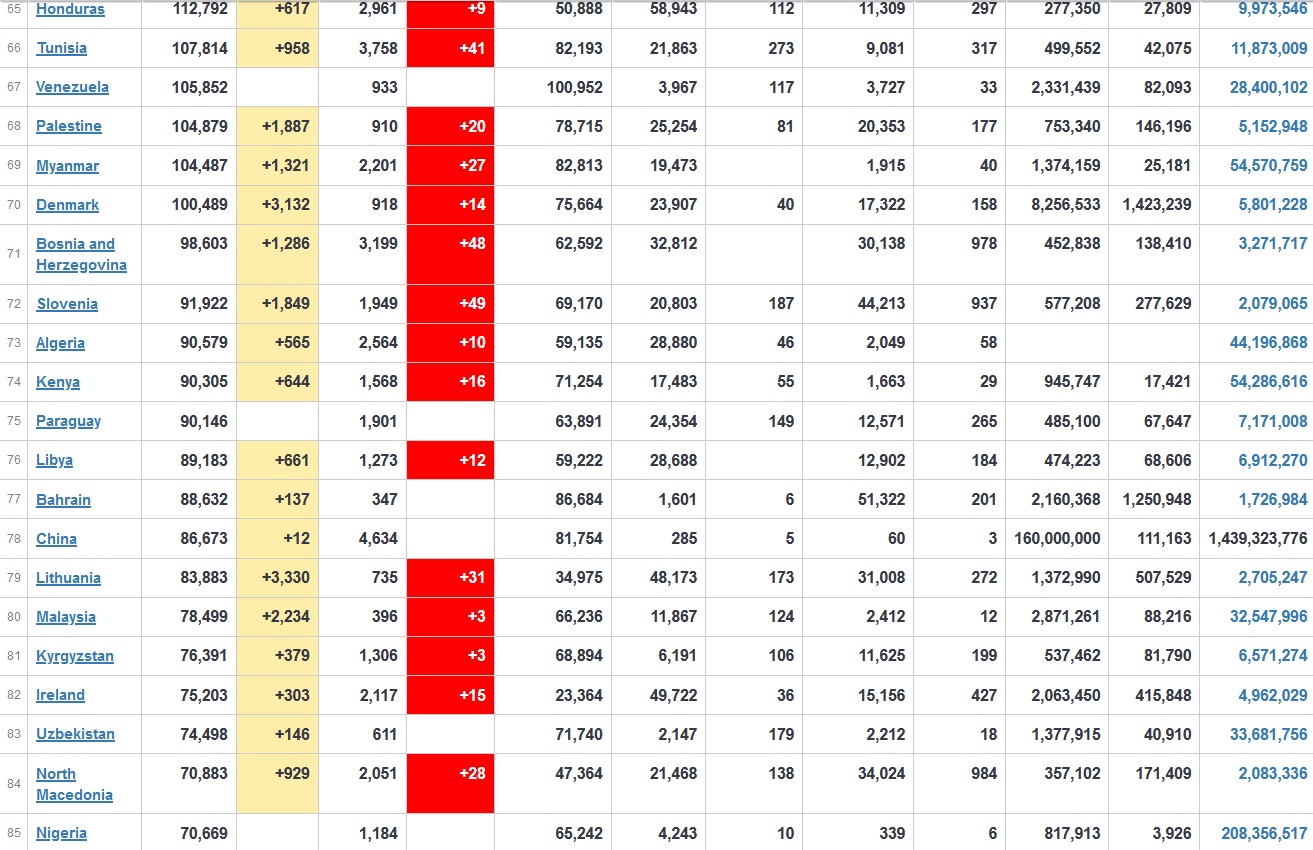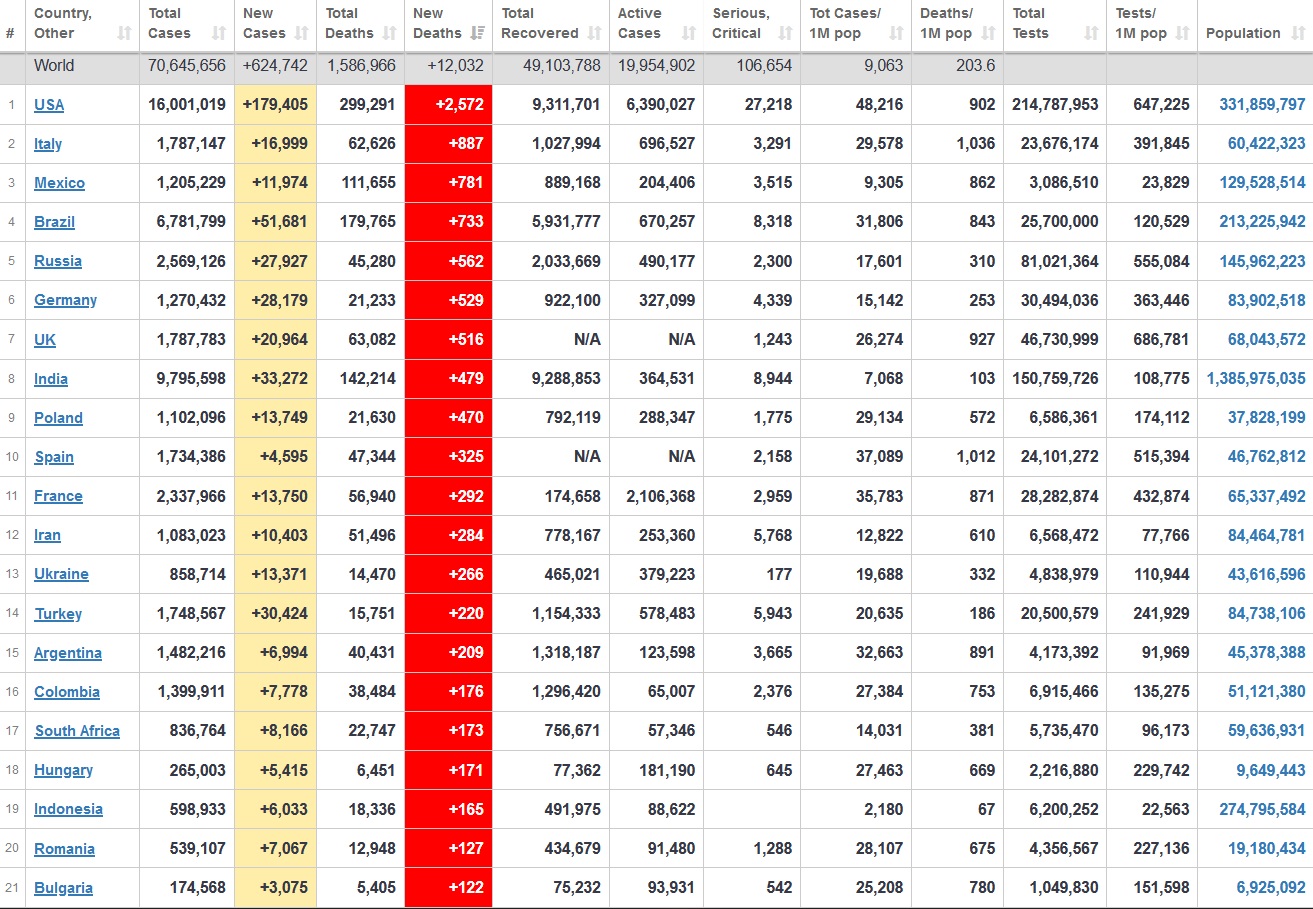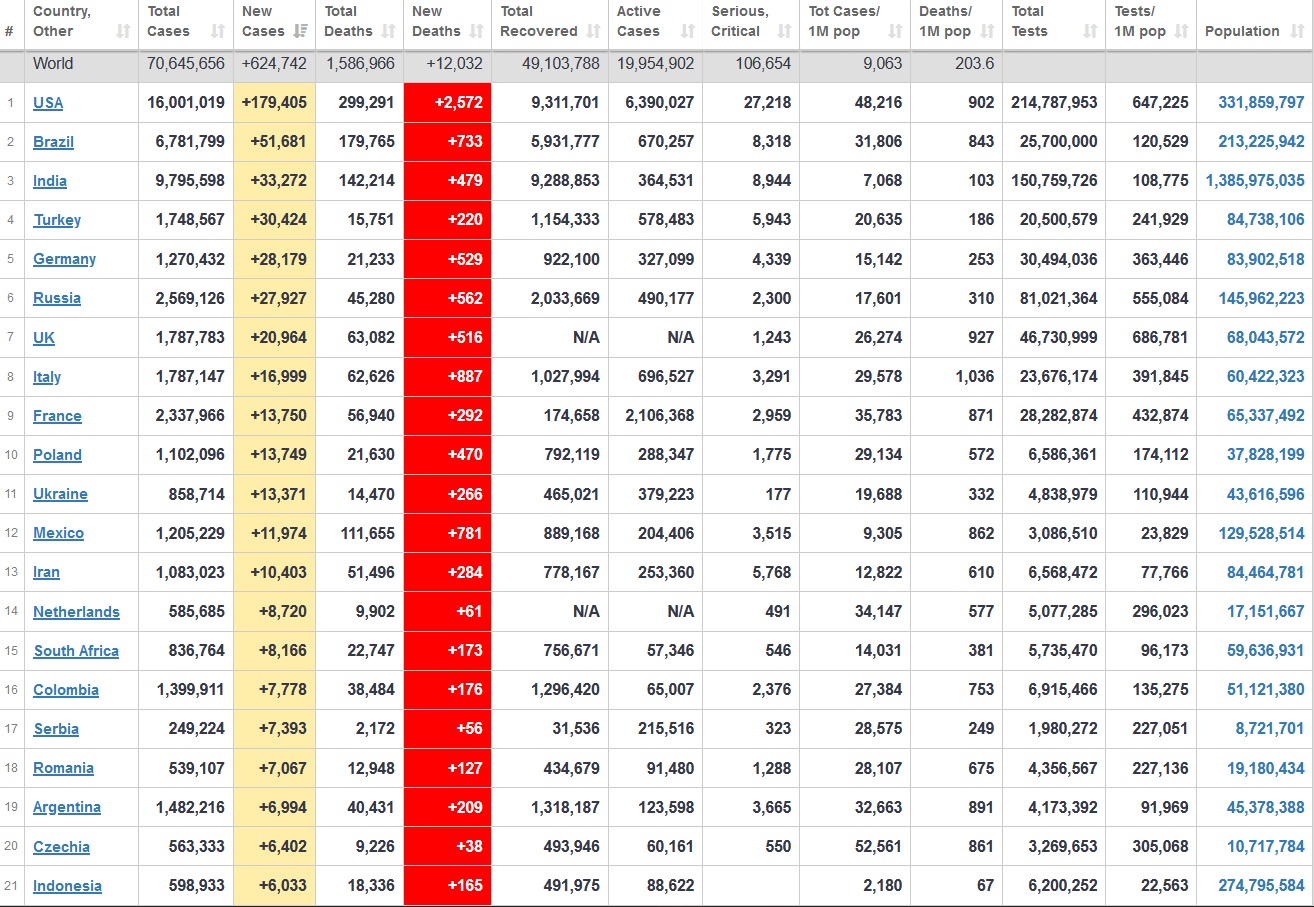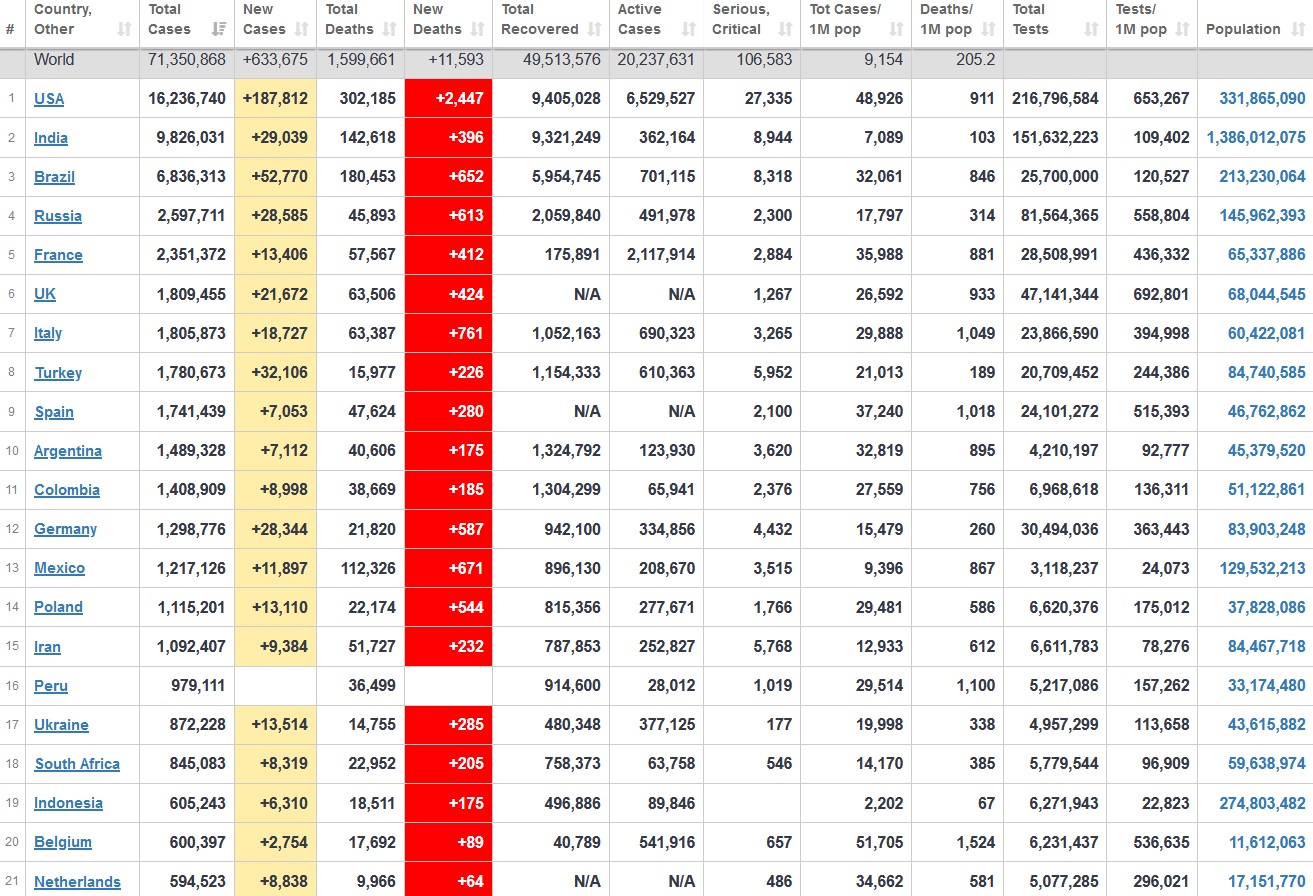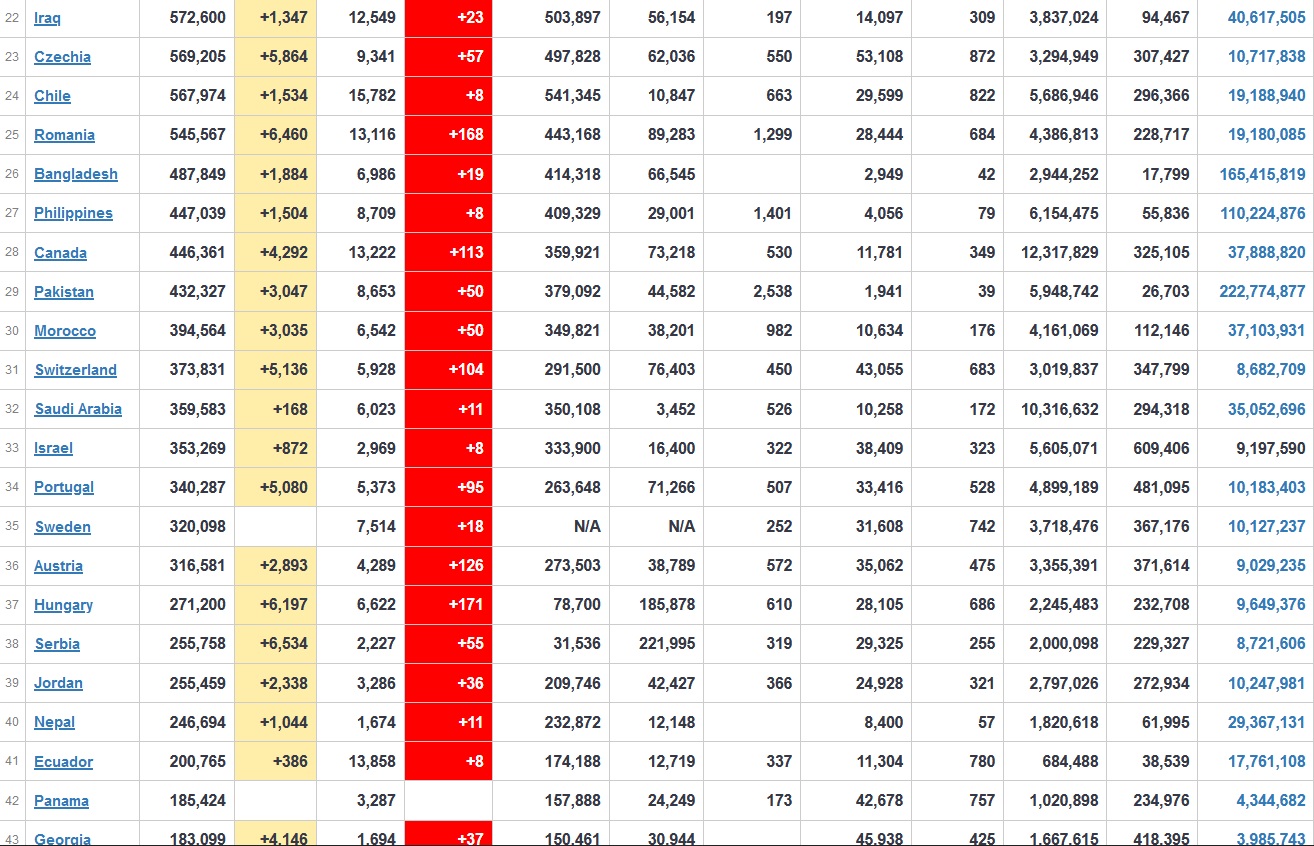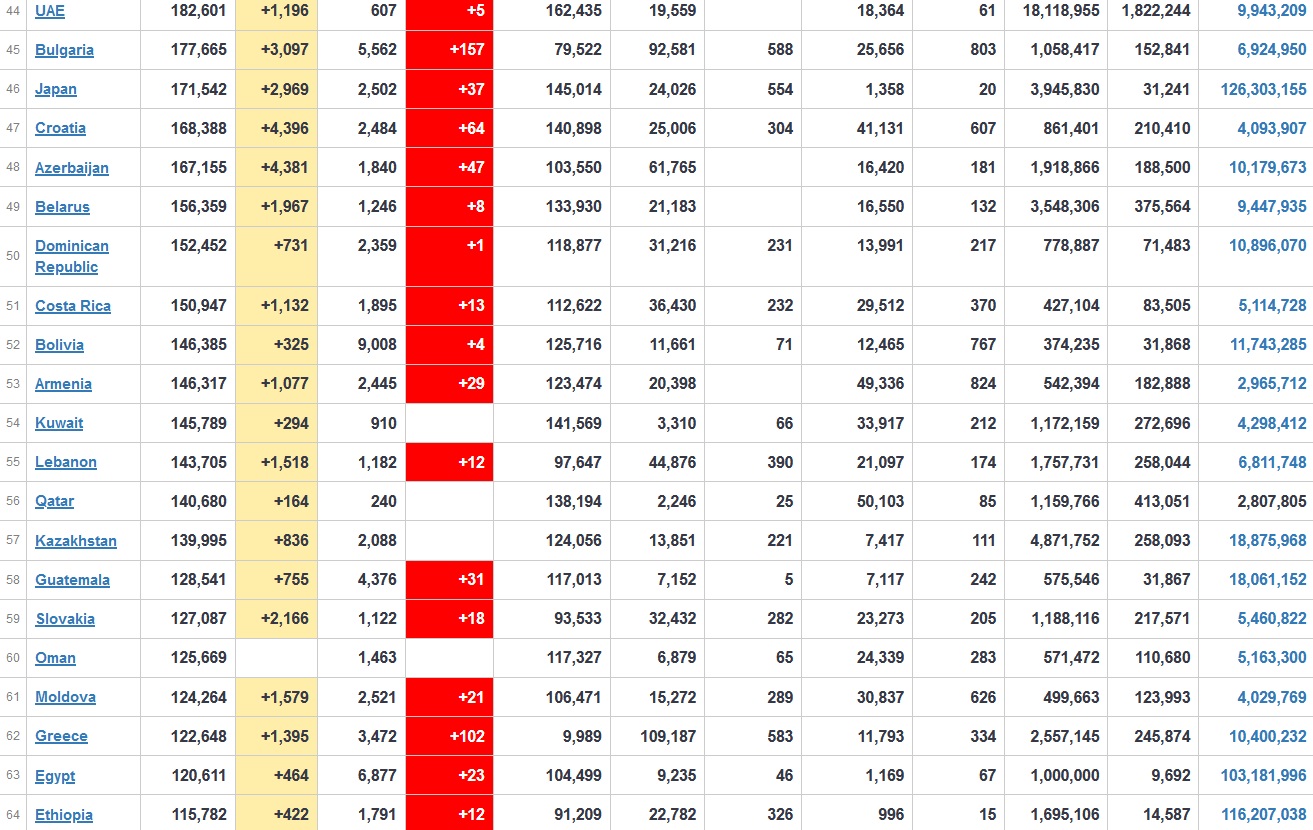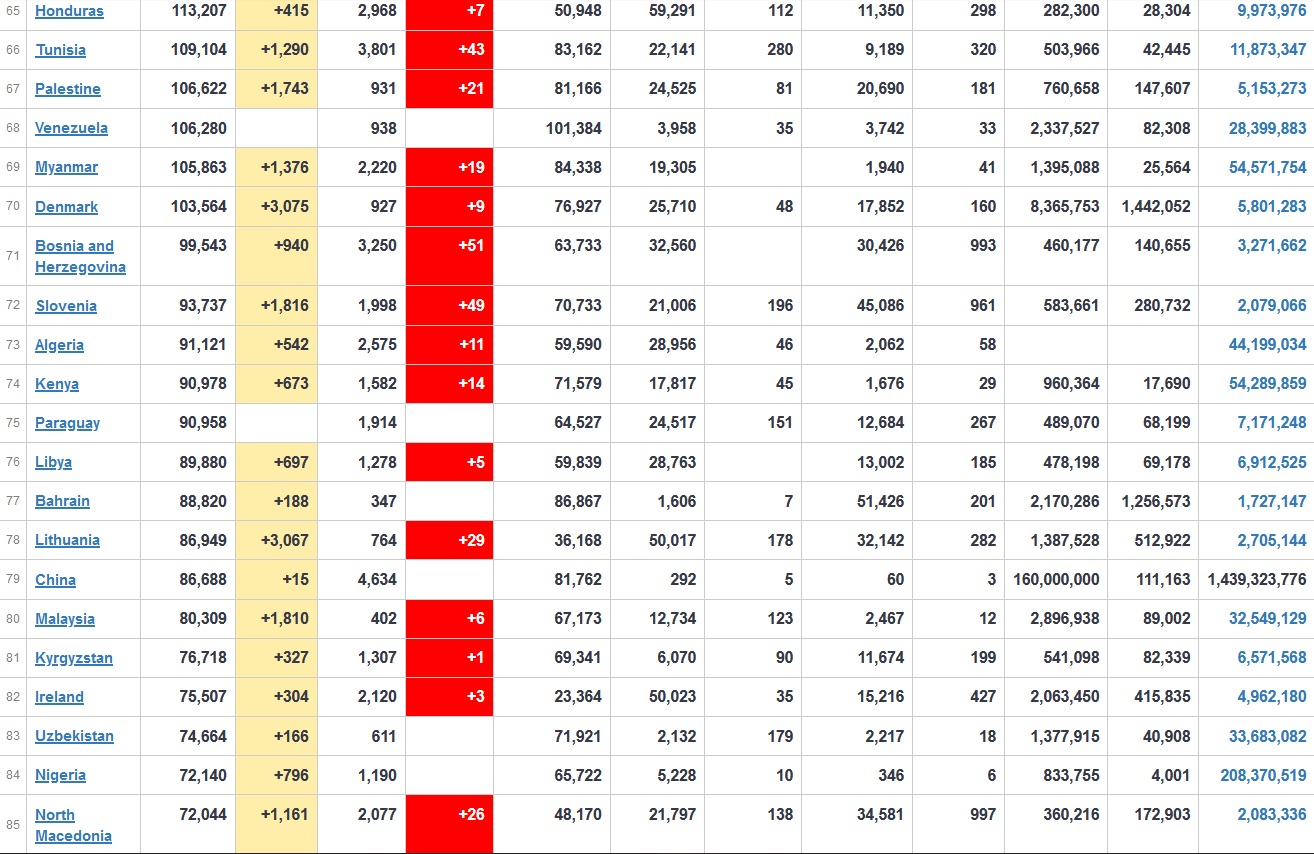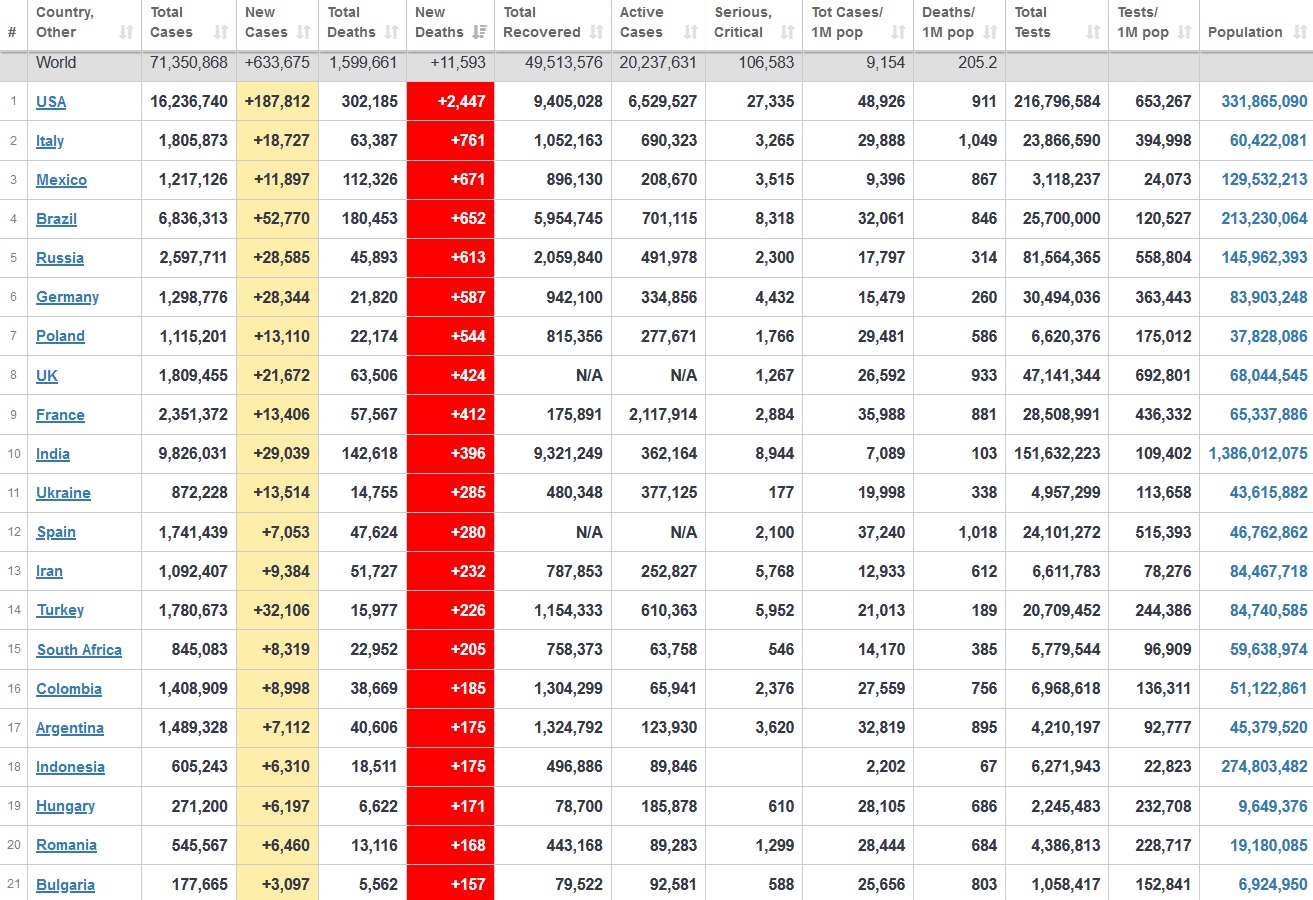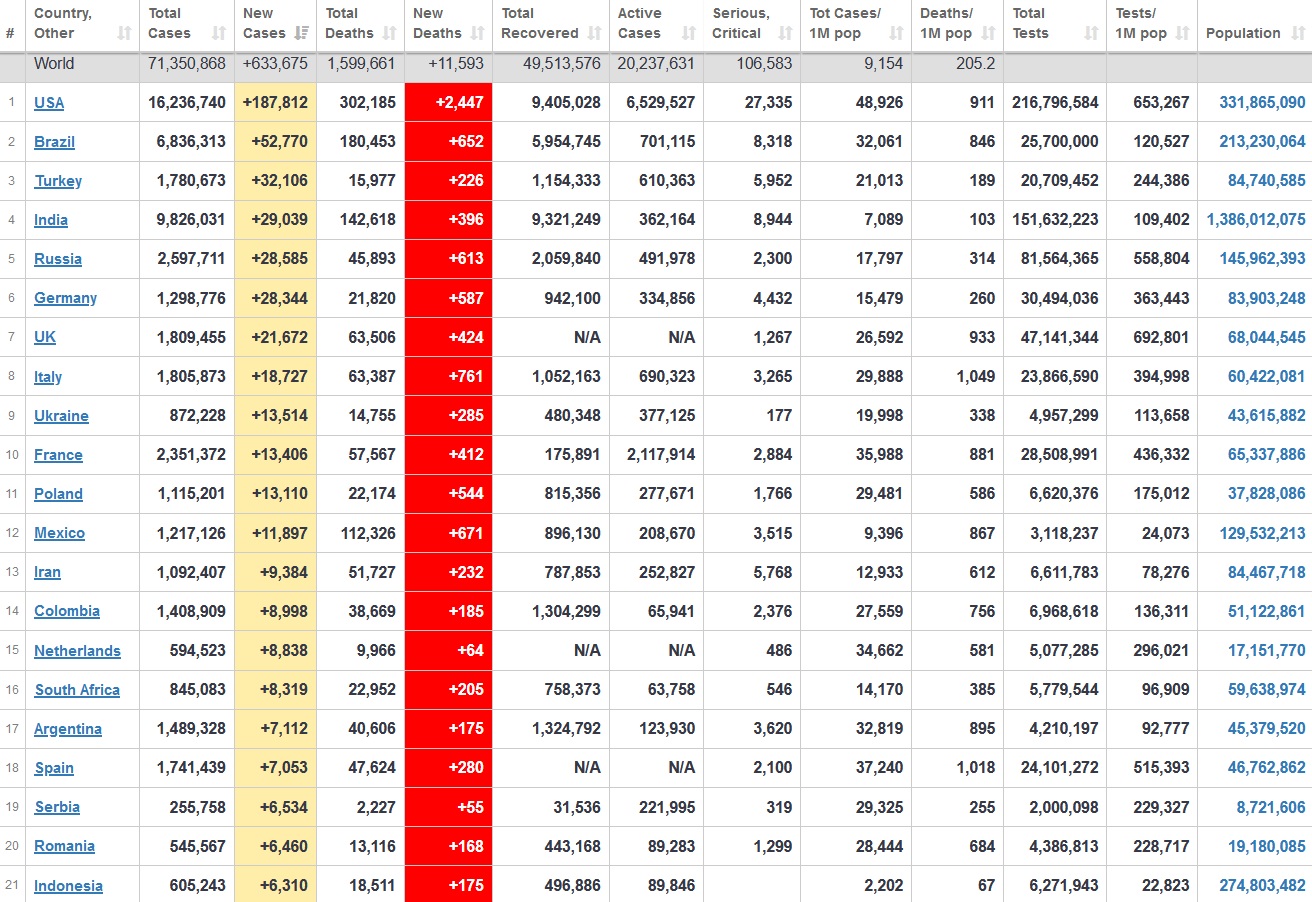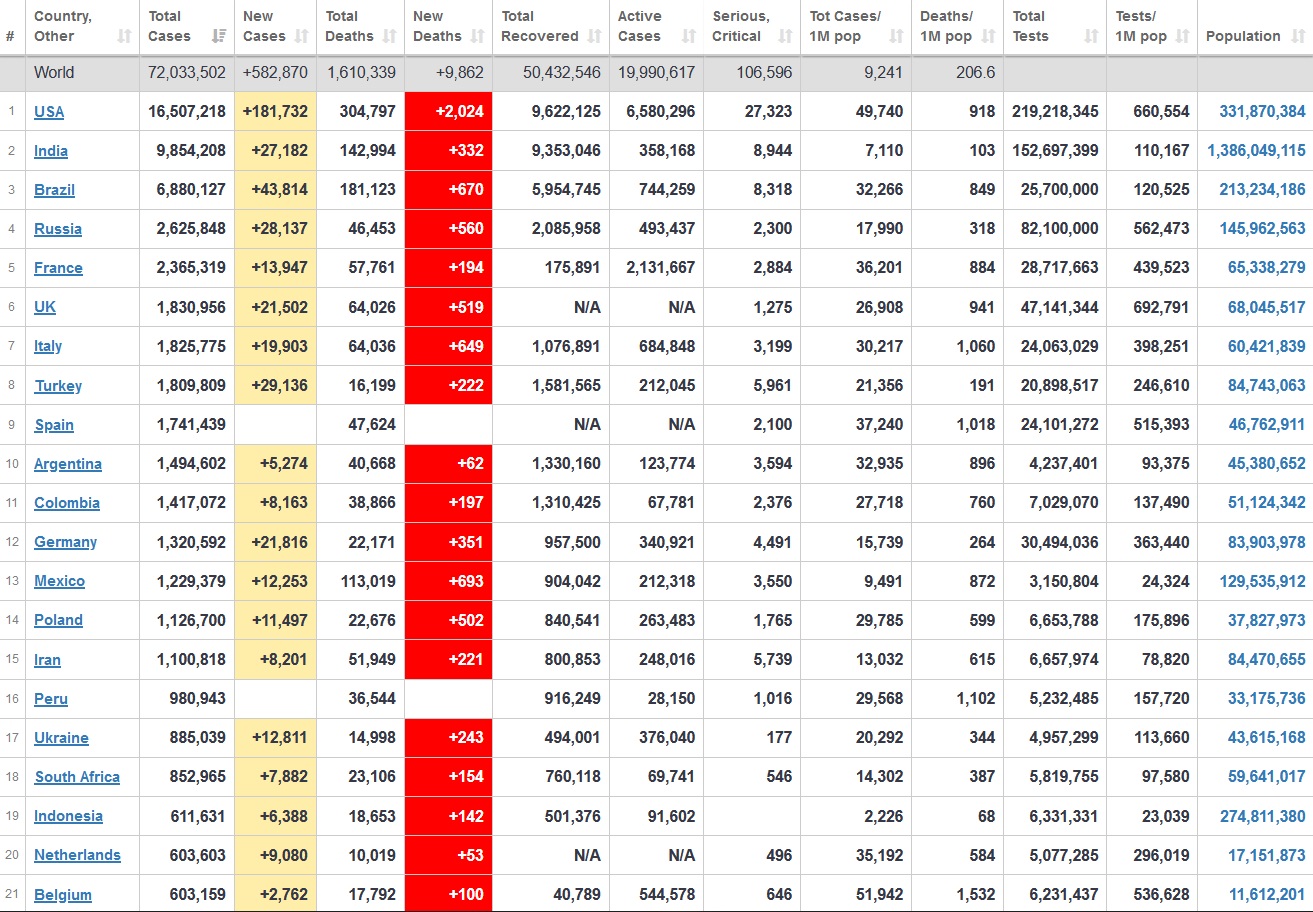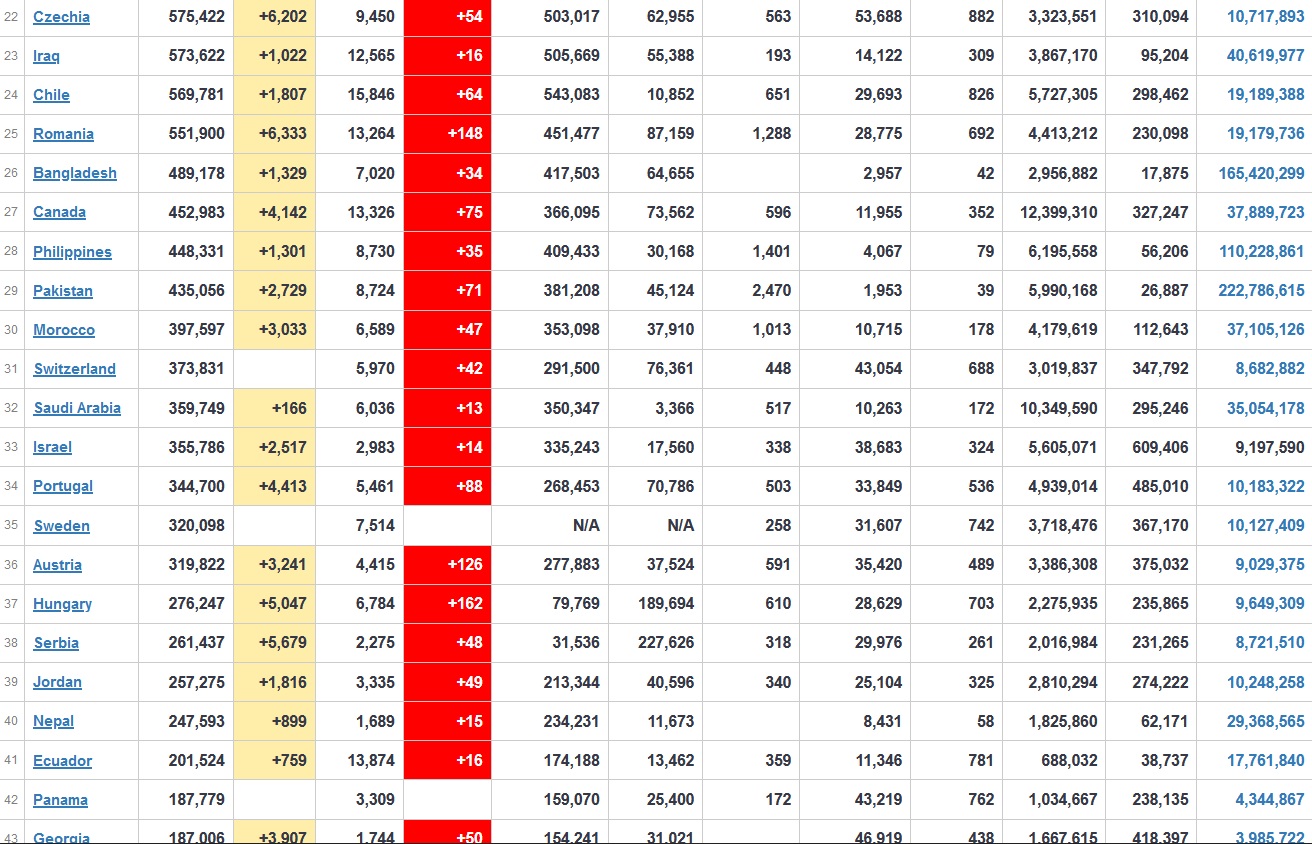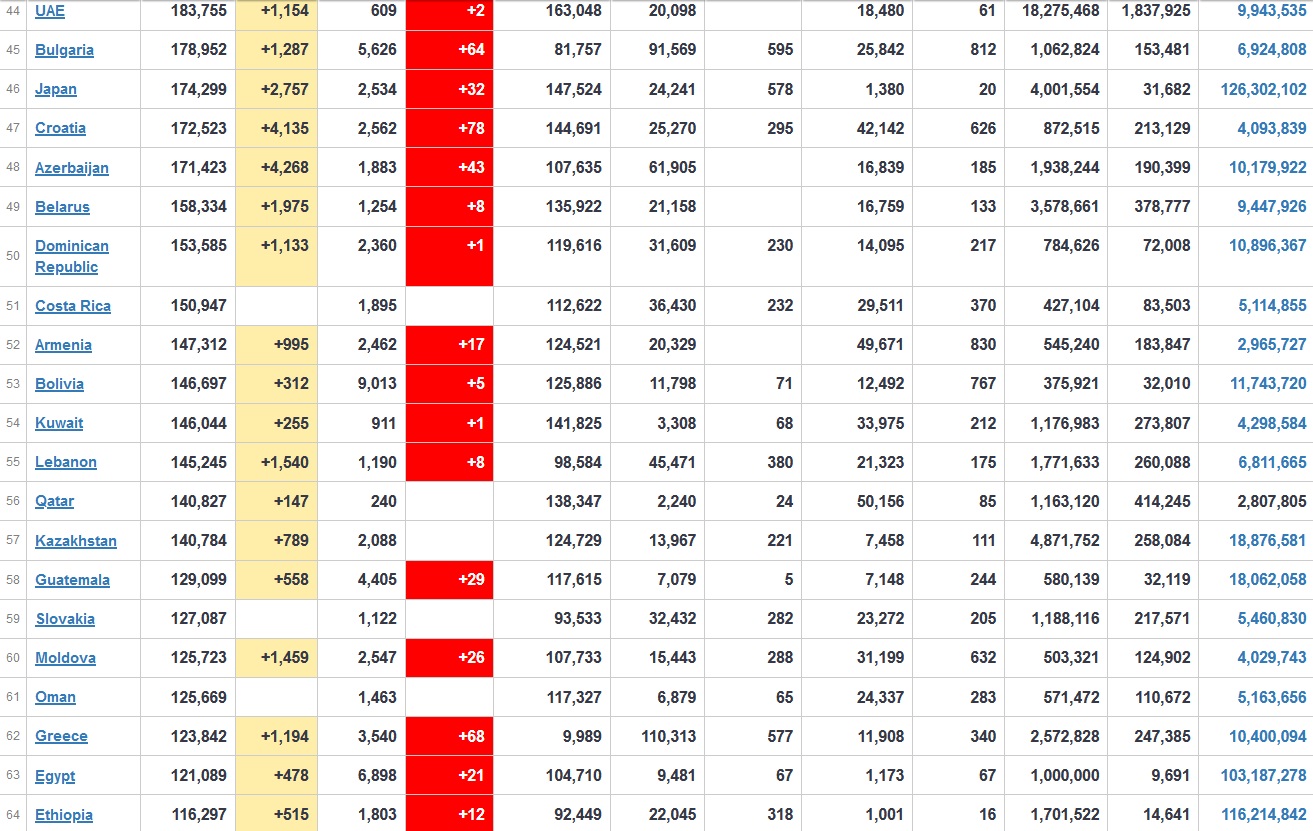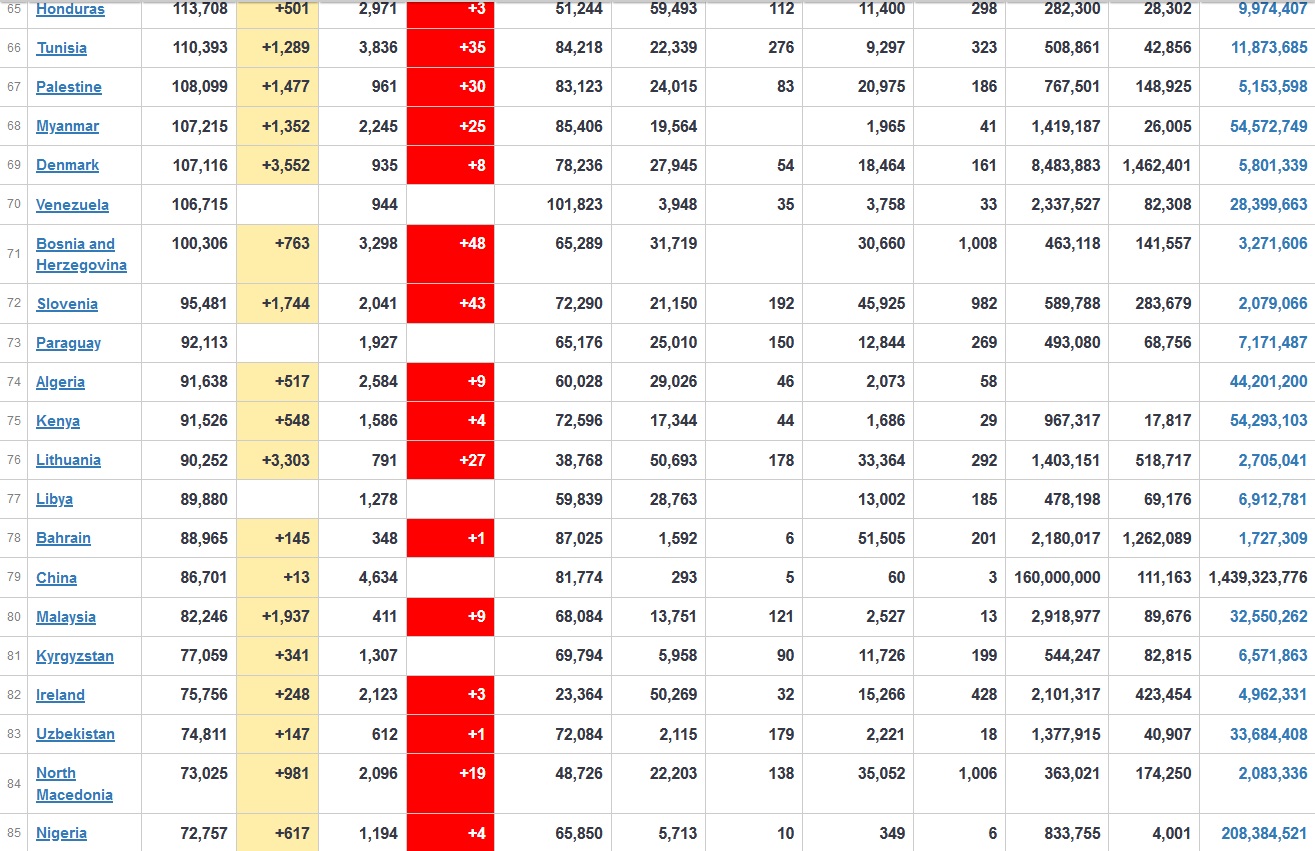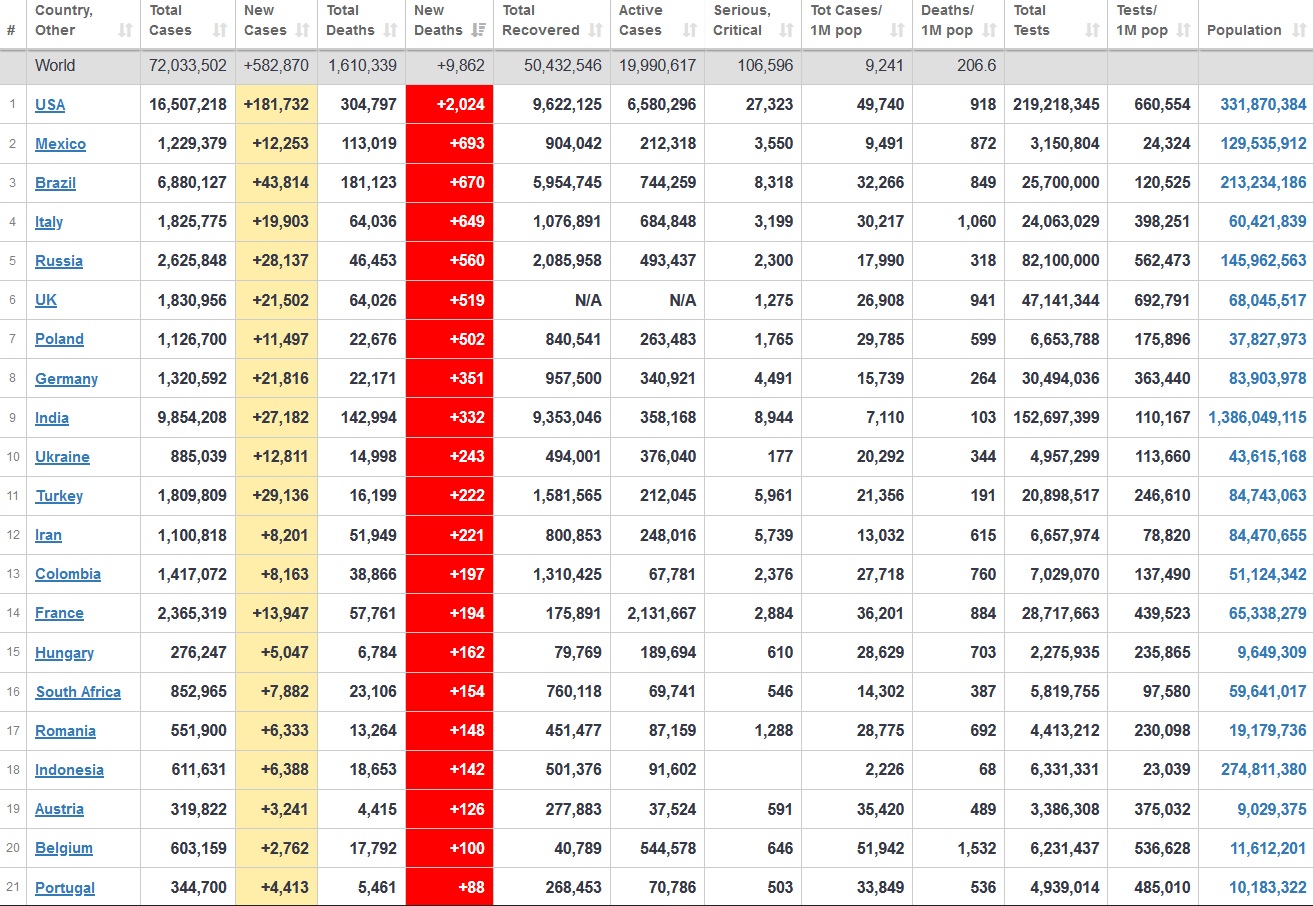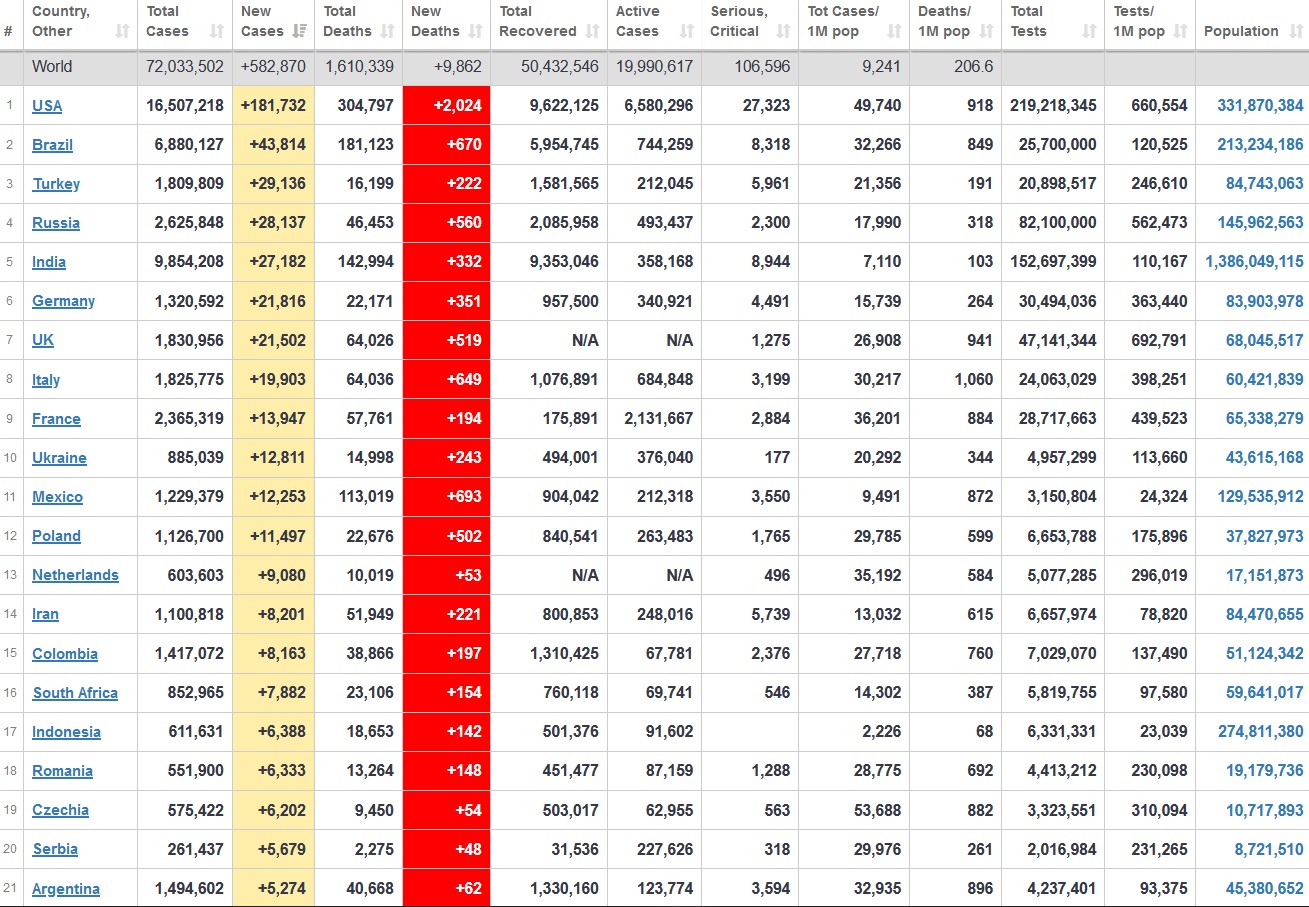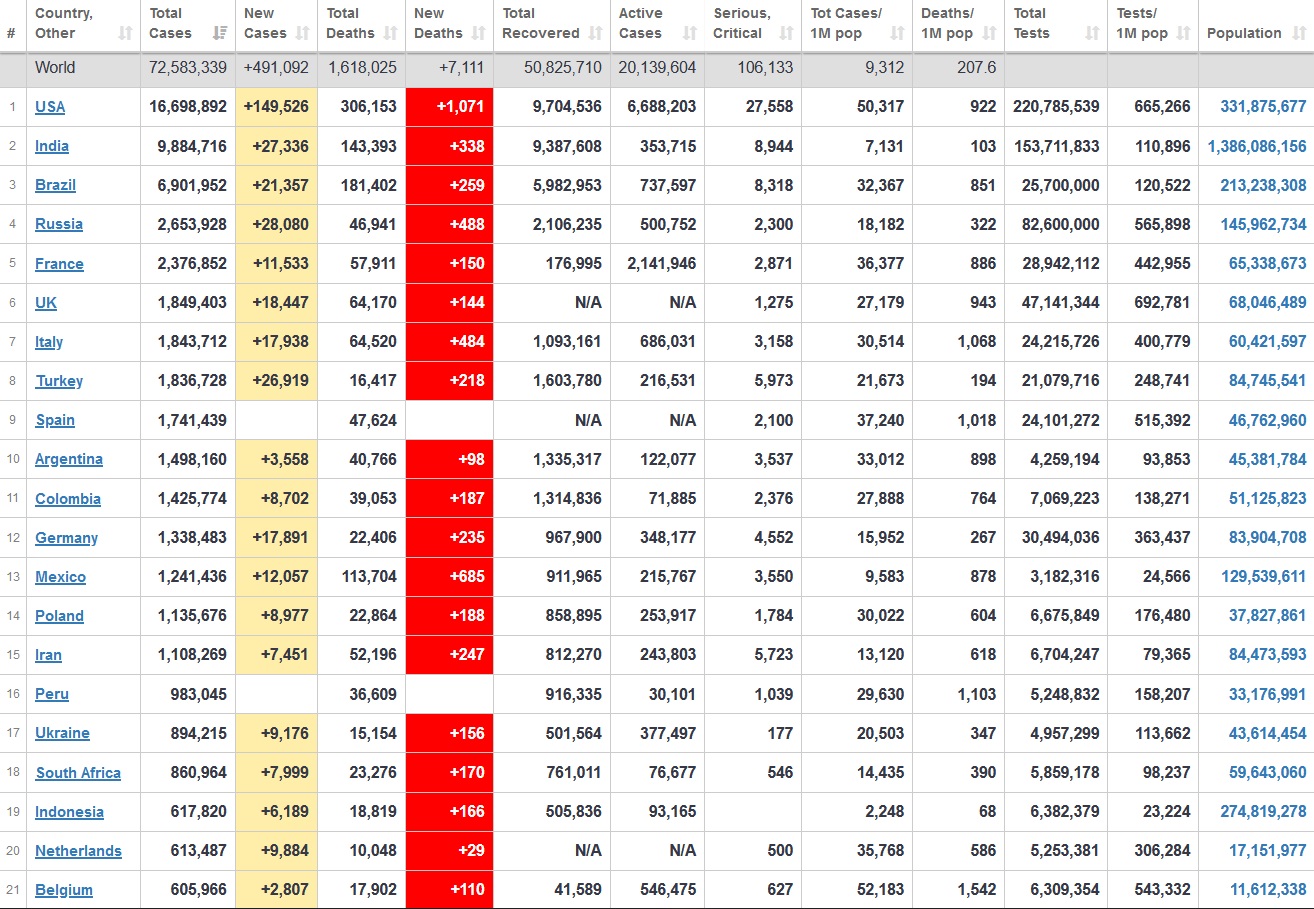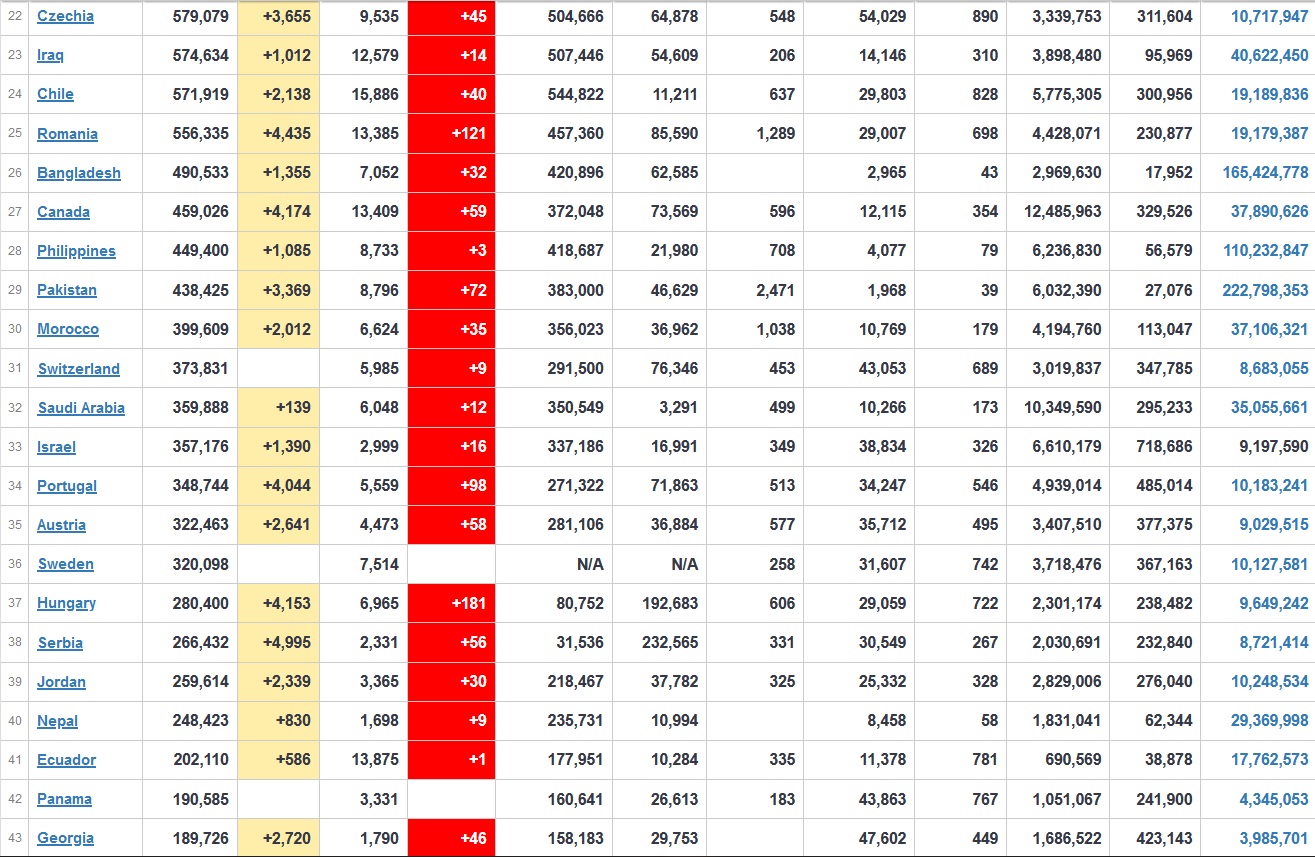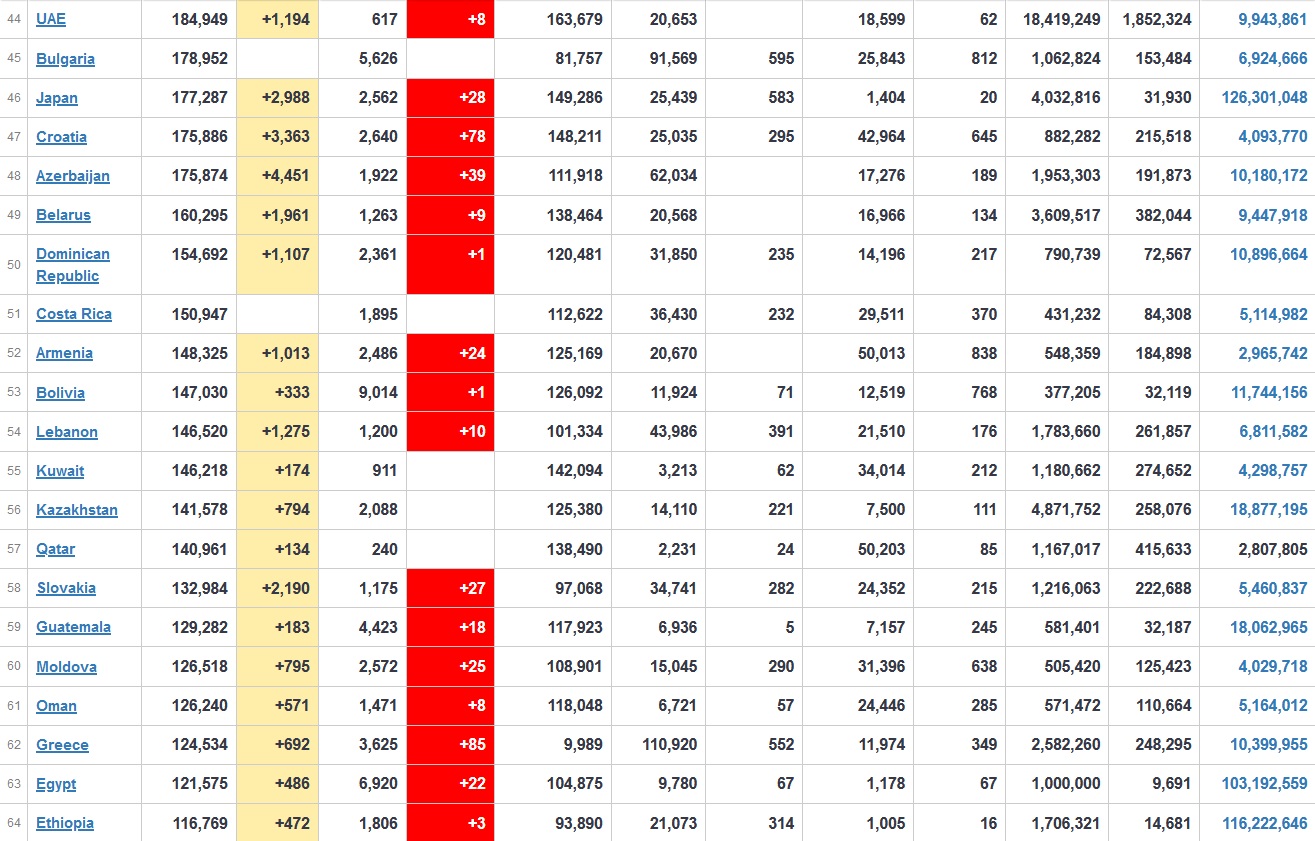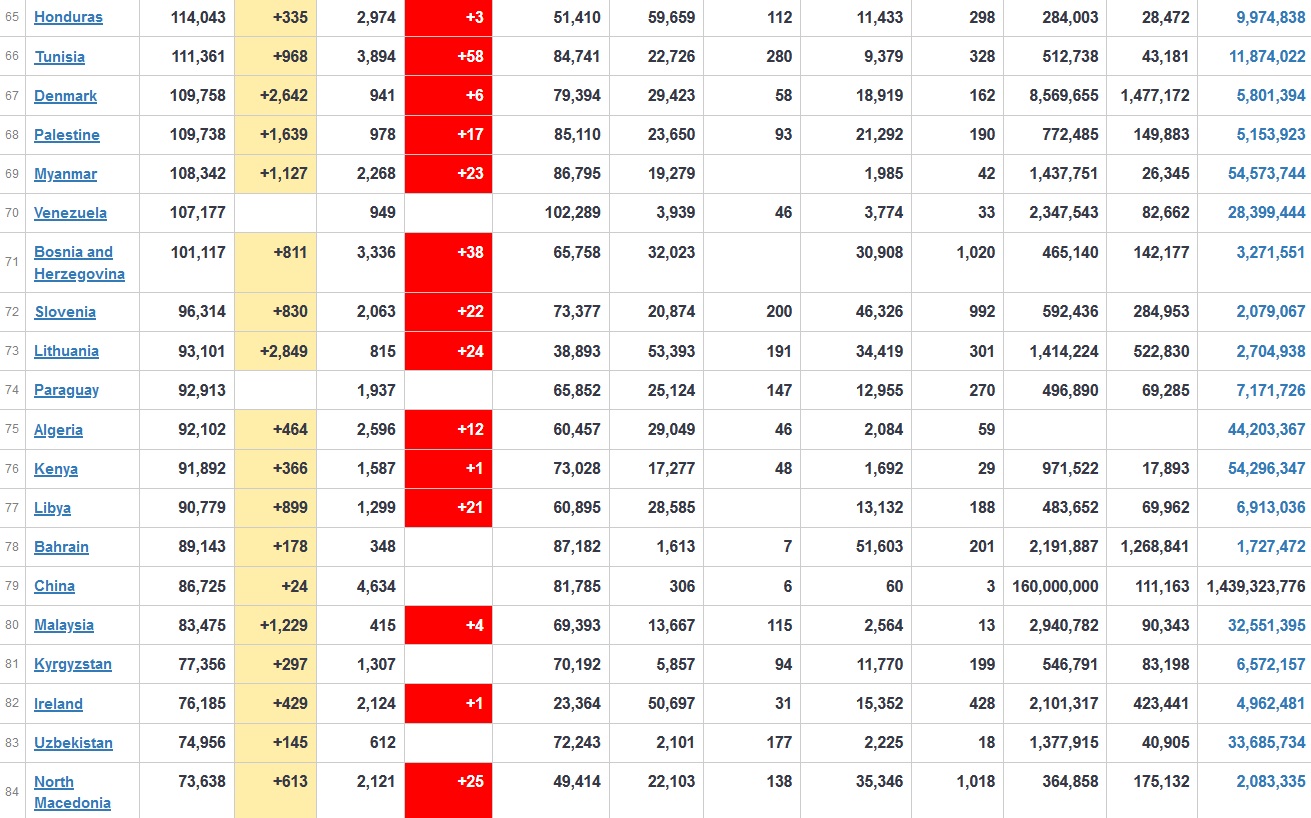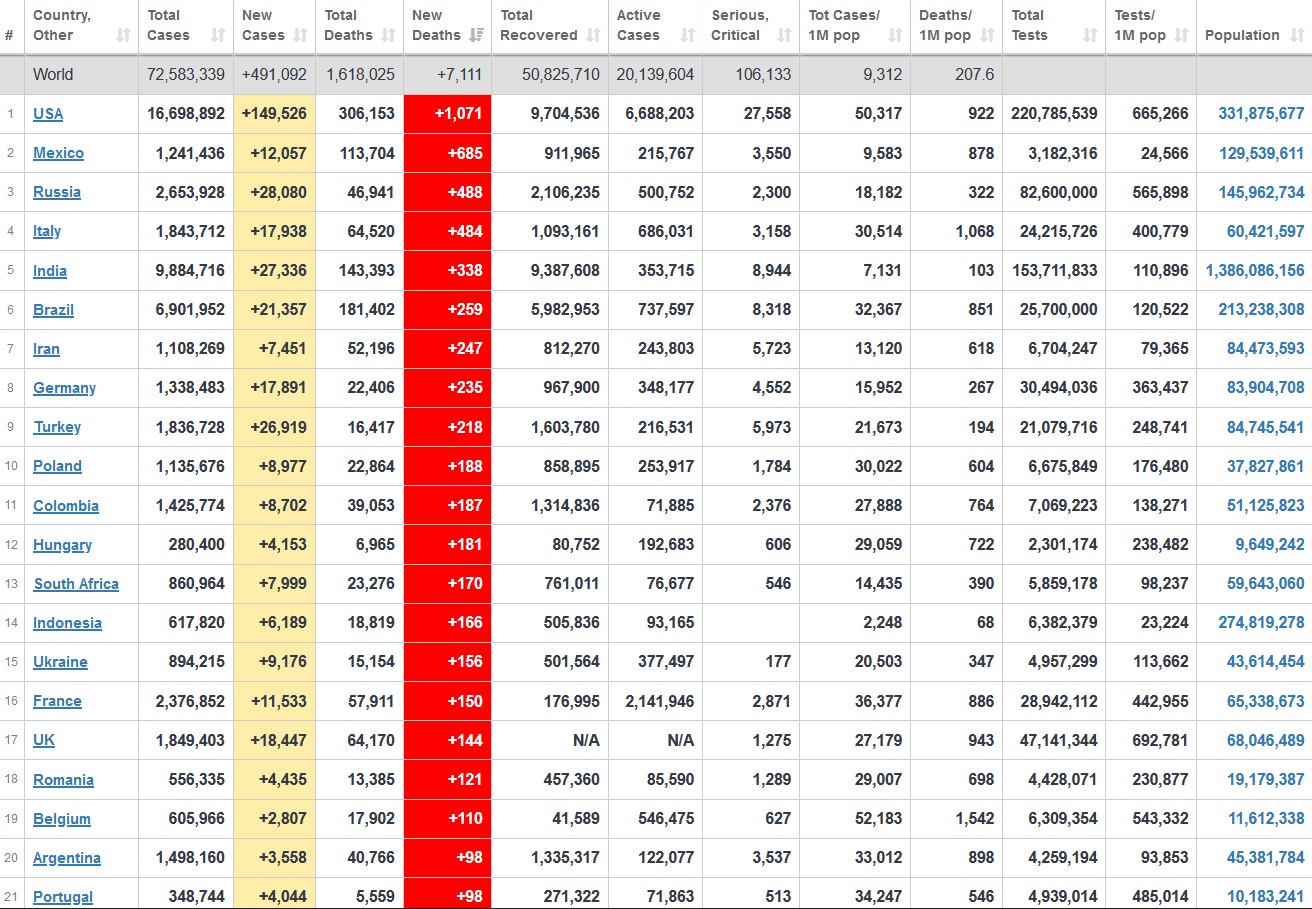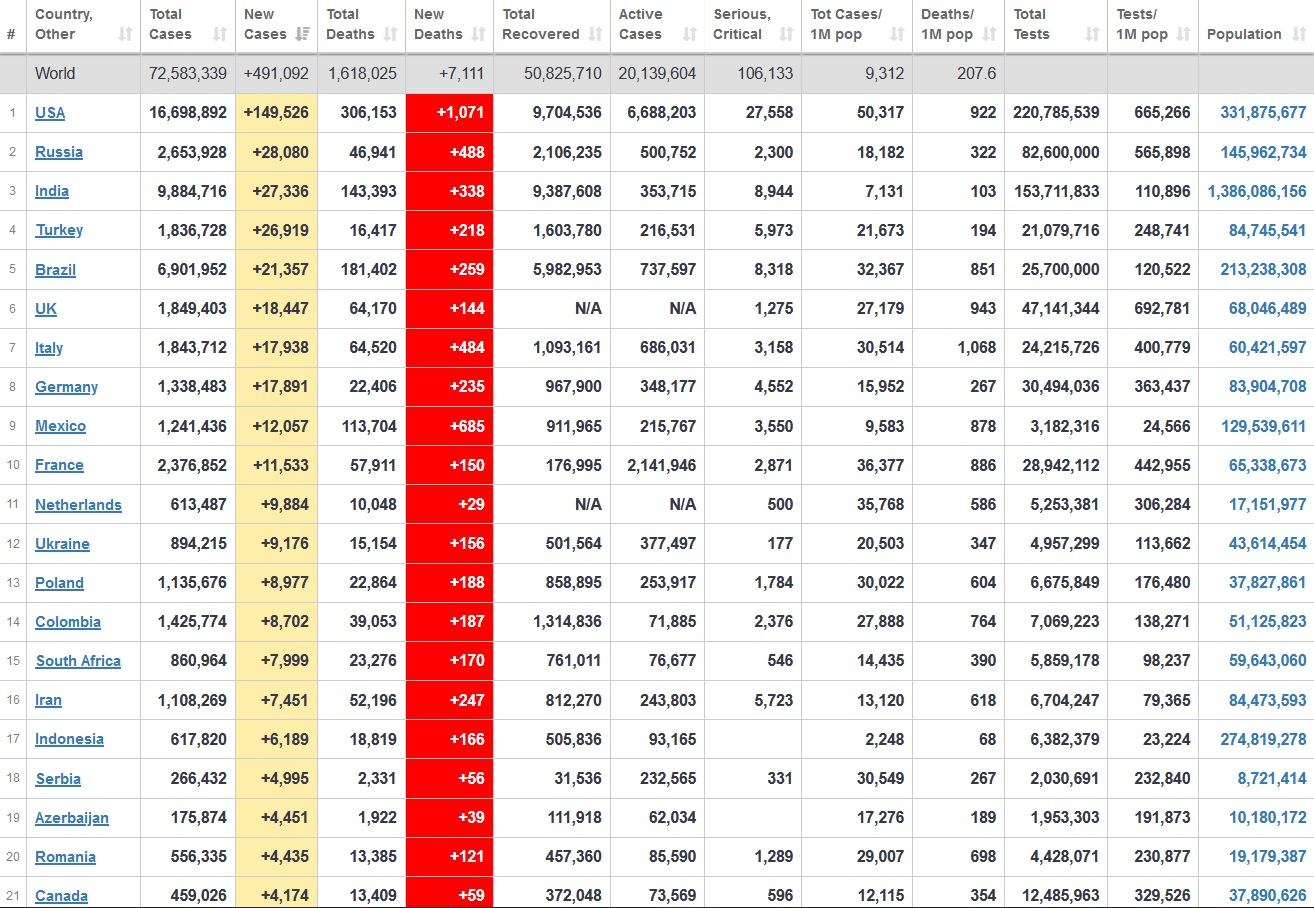It looks like you're using an Ad Blocker.
Please white-list or disable AboveTopSecret.com in your ad-blocking tool.
Thank you.
Some features of ATS will be disabled while you continue to use an ad-blocker.
share:
Numbers Update for Europe, and Elsewhere :
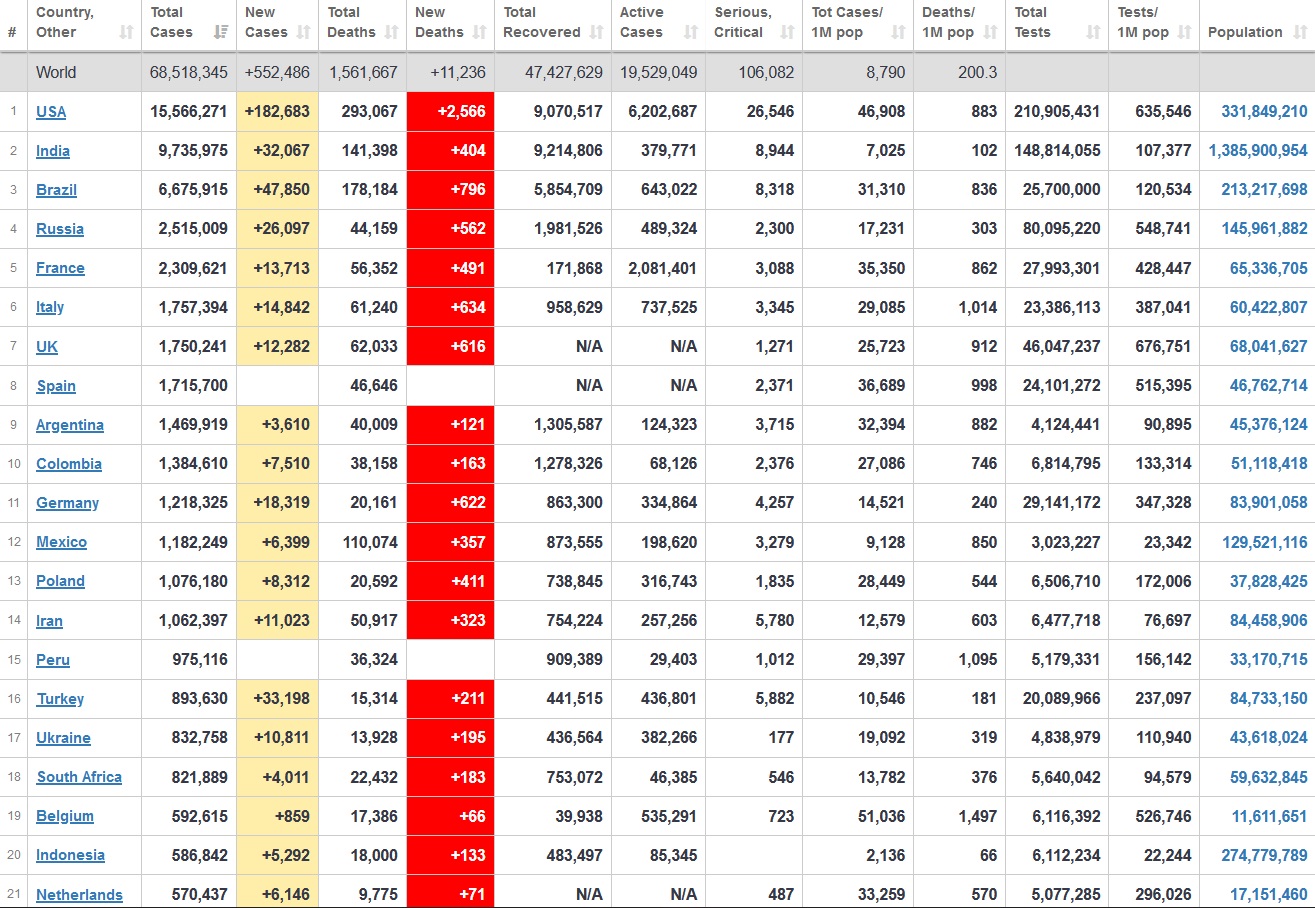
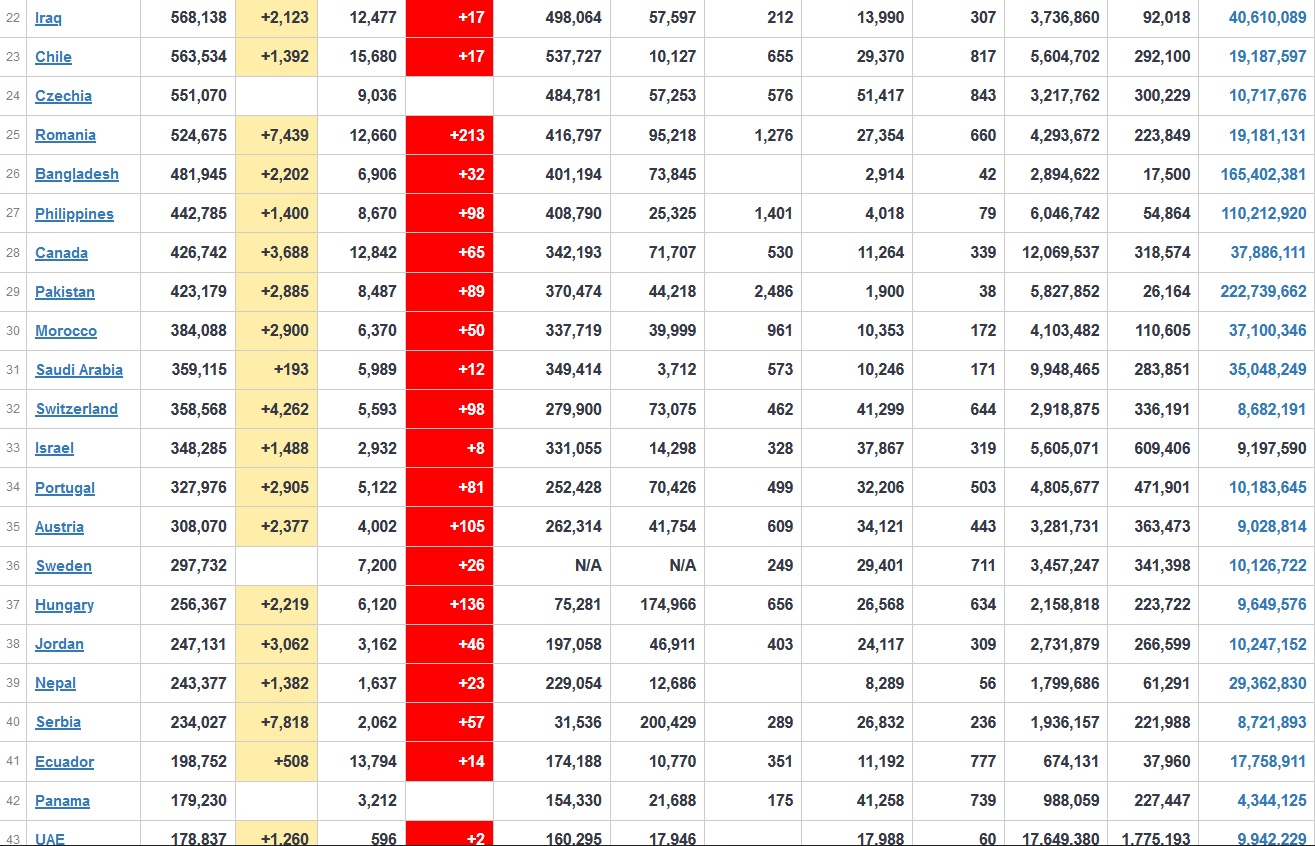
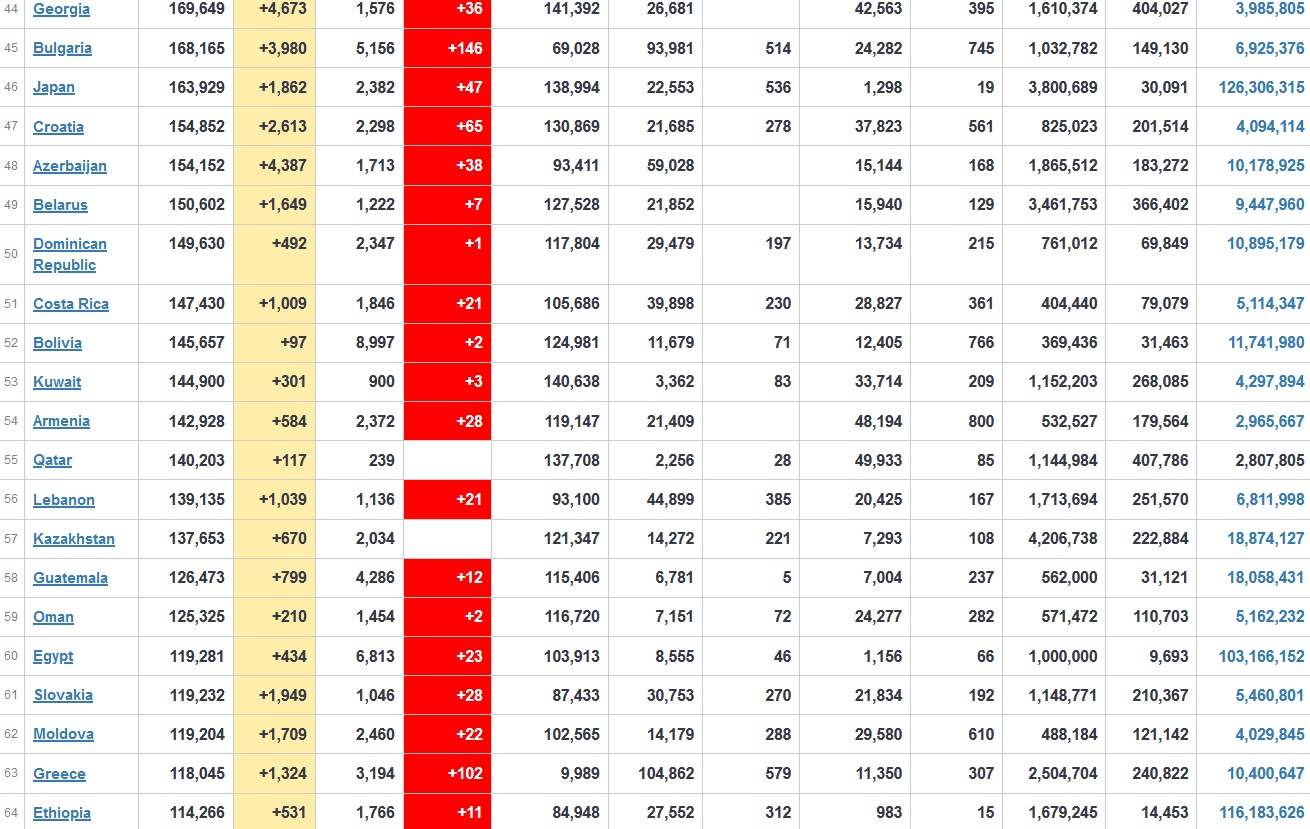
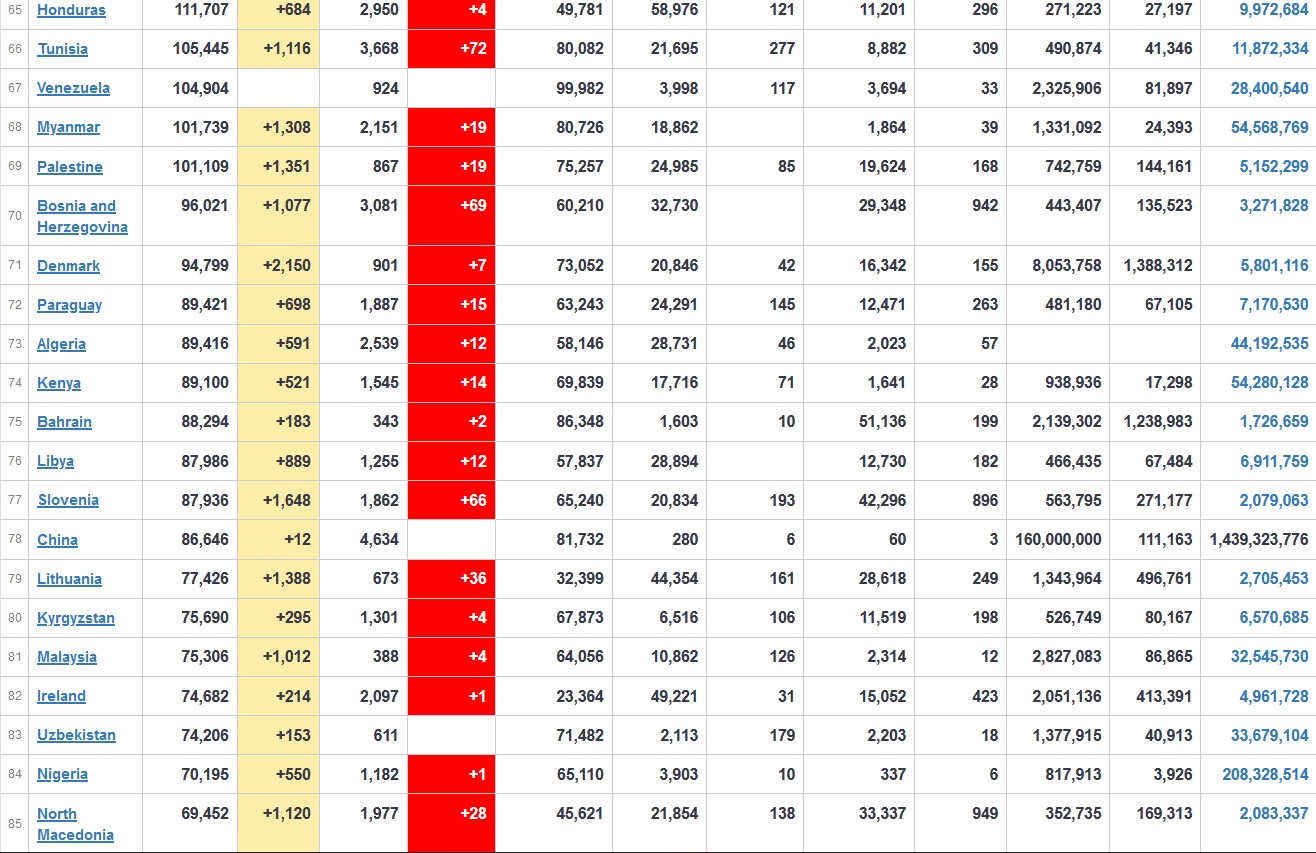
New Deaths :
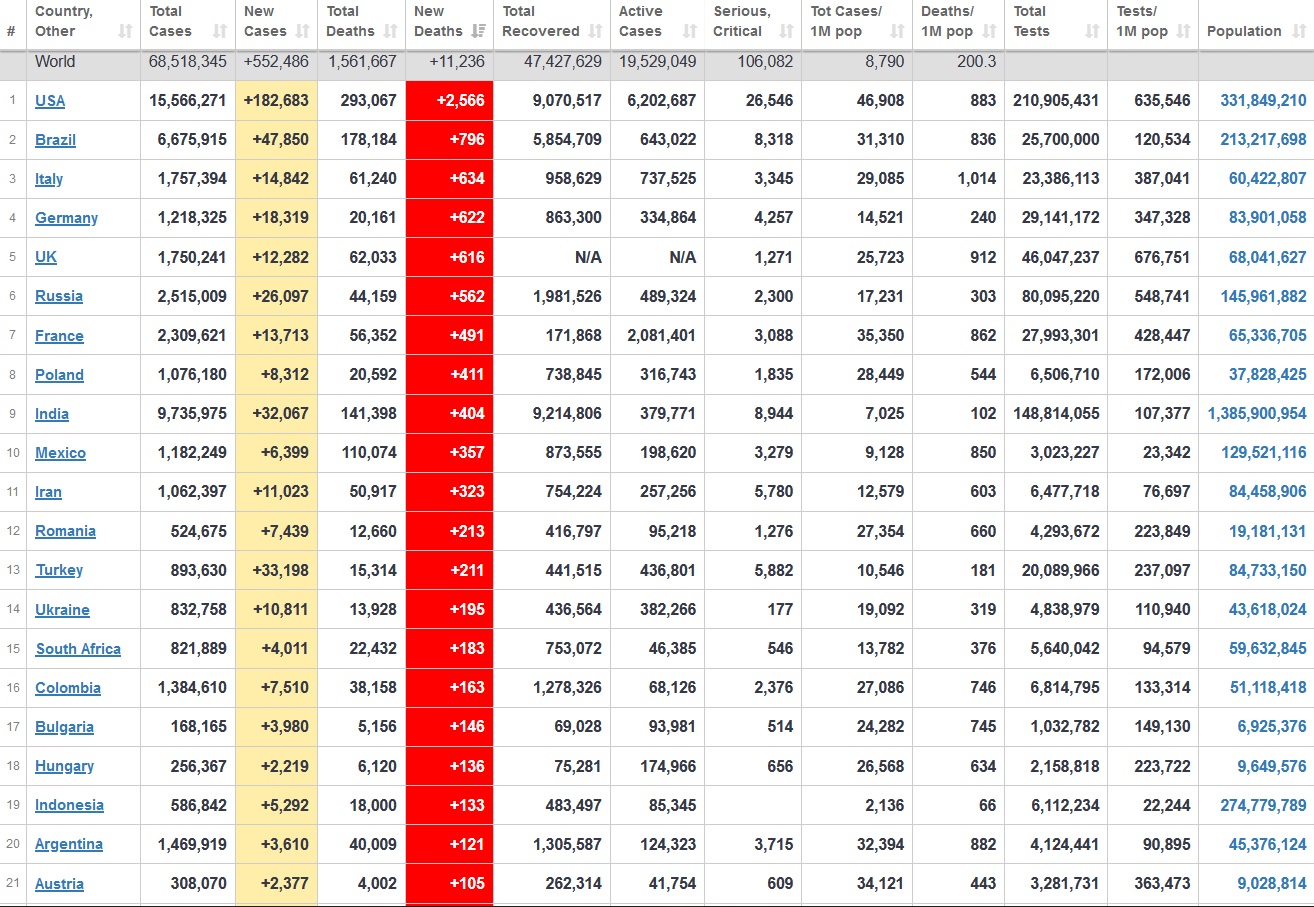
New Cases :
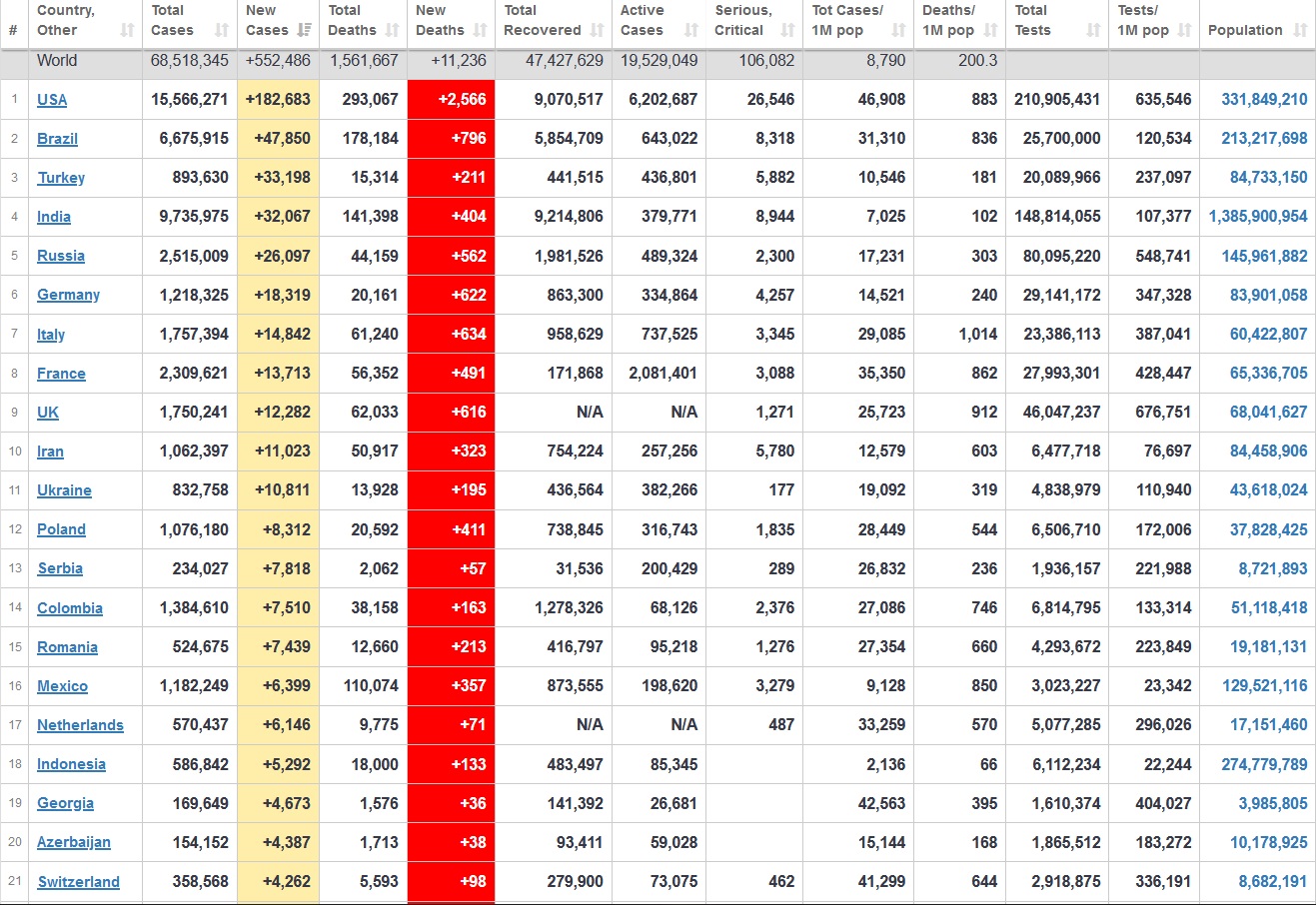
www.worldometers.info...
Had problems uploading yesterday, adblocker related apparently.
Landline Internet came back today though, yay




New Deaths :

New Cases :

www.worldometers.info...
Had problems uploading yesterday, adblocker related apparently.
Landline Internet came back today though, yay
WHO (World Health Organization) now recommends against hugging over the holidays.
pronunciation of certain words could spread COVID, for example the letter "s" requires a strong passage of air out of the mouth.
Tell your friends and family Merry Christmas now before it becomes a banned word.
Don't Hug Anybody Over the Holiday Season, the World Health Organization Says
pronunciation of certain words could spread COVID, for example the letter "s" requires a strong passage of air out of the mouth.
Tell your friends and family Merry Christmas now before it becomes a banned word.
Don't Hug Anybody Over the Holiday Season, the World Health Organization Says
GENEVA (AP) — The World Health Organization has an unwelcome but potentially life-saving message for the holiday season: Don't hug.
To stop the spread of the coronavirus, WHO's emergencies chief said Monday that the “shocking” rate of COVID-19 cases and deaths, particularly in the U.S., means that people shouldn't get too close to their loved ones this year.
edit on 9-12-2020 by CraftyArrow because: (no reason
given)
a reply to: CraftyArrow
Well an option is plastic hugging doorway
But if you are really worried but need the hug buy a clear plastic hooded mac and wear it backwards.
You'll safely hug everyone outside your "RESIDENCE BUBBLE" see them and when finished. take off like a piece of PPE
and put straight in washing machine or bucket of sterilizing solution.
Well an option is plastic hugging doorway
But if you are really worried but need the hug buy a clear plastic hooded mac and wear it backwards.
You'll safely hug everyone outside your "RESIDENCE BUBBLE" see them and when finished. take off like a piece of PPE
and put straight in washing machine or bucket of sterilizing solution.
The White House orders the FDA director to authorize the Pfizer covid-19 vaccine today, or submit his resignation.
mobile.twitter.com...
mobile.twitter.com...
Brazil confirms first case of person being reinfected with Covid-19 (58 suspected cases of re-infection)
From the Gua rdian Live Feed at 7/15pm :
From the Gua rdian Live Feed at 7/15pm :
Brazil’s health ministry is studying 58 suspected cases of Covid-19 re-infection after confirming the first case of a person getting re-infected with coronavirus, a ministry spokeswoman said.
The first case was a health worker in the northern city of Natal, a 37-year-old woman, who tested positive in June and again 116 days later in October, the ministry said on Thursday.
The re-infection was confirmed by the FioCruz biomedical research center in Rio de Janeiro, it said in a statement.
So far 58 suspected cases of re-infection have been reported and are being studied, the spokeswoman said.
The cases involve people who tested positive and their re-infection must be confirmed as a separate infection and not the re-appearance of the same infection, she said.
The FioCruz researcher who did the genetic sequencing of the infection of the case in Natal, Paola Resende, said it looked like the woman did not generate enough anti-bodies to avoid getting infected again more than 90 days later.
Resende told Reuters that the woman was infected by a separate strain of coronavirus the second time.
"The pathogen of the sample collected in June belonged to the B.1.1.33 strain and the October sample was from the B.1.1.28 strain. Both had already been detected in Brazil,” she said.
A bit more on the Genes that may be responsible for some of the Worst effects in people, from the
Gua
rdian Live Feed at 9:31pm
Scientists have linked the most severe form of COVID-19 with five genes that affect lung inflammation and the body’s ability to fight off viruses.
Their findings, from a study of 2,700 COVID-19 patients in intensive care units across Britain, point to several existing drugs that could be repurposed to treat people who risk becoming critically ill.
The genes - called IFNAR2, TYK2, OAS1, DPP9 and CCR2 - partially explain why some people become desperately sick with COVID-19, while others are not affected, said Kenneth Baillie of Edinburgh University, coauthor of the study published on Friday in Nature. The new information should help scientists design clinical trials of medicines that target specific antiviral and anti-inflammatory pathways. Among those with the most potential, Baillie said, should be a class of anti-inflammatory drugs called JAK inhibitors, including Eli Lilly’s arthritis drug baricitinib, which has been found to help hospitalized pneumonia patients in combination with Gilead’s remdesivir.
originally posted by: carewemust
The White House orders the FDA director to authorize the Pfizer covid-19 vaccine today, or submit his resignation.
mobile.twitter.com...
DONE! The FDA Director approved the Pfizer Covid-19 vaccine this evening.
www.foxnews.com...
Statement from President Trump, regarding the Pfizer vaccine's FDA approval, development, and distribution beginning within 24 hours.
a reply to: MonkeyBalls2
I read about this yesterday and if I’m correct it identifies people with less interferons, meaning their immune system doesn’t react quickly enough. Yet it also identifies people with immune systems prone to overreact.
We may have known this for sometime, but this is another reminder of how insanely equipped this virus is to devastate either end of the immune response spectrum. Can this really be a work of nature?
I read about this yesterday and if I’m correct it identifies people with less interferons, meaning their immune system doesn’t react quickly enough. Yet it also identifies people with immune systems prone to overreact.
We may have known this for sometime, but this is another reminder of how insanely equipped this virus is to devastate either end of the immune response spectrum. Can this really be a work of nature?
edit on 12-12-2020 by McGinty because: (no reason given)
Does anyone remember the guy, who posted in these threads quite a bit at the beginning, who had a Chinese wife (though they do not live in China)?
He would post bits of news that his wife was (sometimes) able to get from her family on what was really going on in China..
I've just seen so much conflicting info about whether or not China was 'really' affected by 'Covid' as the rest of the world has been -
- the whole thing has me questioning my own perceptions of 'the truth' at times.
He would post bits of news that his wife was (sometimes) able to get from her family on what was really going on in China..
I've just seen so much conflicting info about whether or not China was 'really' affected by 'Covid' as the rest of the world has been -
- the whole thing has me questioning my own perceptions of 'the truth' at times.
I think China DID go through this, and did what it took to eradicate it, no matter how harsh it is.
They lived through Sars, and there was also Mers.
We never went through that, so we didn't have the "Oh #!" moment that they did.
What I am wondering though, is if the 'West' has decided to jump on the coronivirus bandwagon, and use it to their own advantage.
It wouldn't be the first time.
There seems to be a total lack of 'complete' transparency about this.
If they were 100% open, it wouldn't be so bad.
I Wish some 'Mulder and Scully' would be around to sort the politicians/DAVOS shysters out...
"Trust No One"
They lived through Sars, and there was also Mers.
We never went through that, so we didn't have the "Oh #!" moment that they did.
What I am wondering though, is if the 'West' has decided to jump on the coronivirus bandwagon, and use it to their own advantage.
It wouldn't be the first time.
There seems to be a total lack of 'complete' transparency about this.
If they were 100% open, it wouldn't be so bad.
I Wish some 'Mulder and Scully' would be around to sort the politicians/DAVOS shysters out...
"Trust No One"
It’s December 2020 and people still don’t believe in masks...
Mask Heros - Instagram
So brave and so selfless. These two deserve a hug from Newsom.
I hope this inspires all you maskers to stand up and fight the good fight.
Mask Heros - Instagram
So brave and so selfless. These two deserve a hug from Newsom.
I hope this inspires all you maskers to stand up and fight the good fight.
new topics
-
A Bunch of Maybe Drones Just Flew Across Hillsborough County
Aircraft Projects: 33 minutes ago -
Who's coming with me?
General Conspiracies: 1 hours ago -
FBI Director CHRISTOPHER WRAY Will Resign Before President Trump Takes Office on 1.20.2025.
US Political Madness: 5 hours ago -
The NIH is still sending taxpayer money to Chinese Labs to Conduct cruel animal experiments
Mainstream News: 5 hours ago -
Angela Merkel is terrified of dogs
Politicians & People: 7 hours ago
top topics
-
The NIH is still sending taxpayer money to Chinese Labs to Conduct cruel animal experiments
Mainstream News: 5 hours ago, 11 flags -
FBI Director CHRISTOPHER WRAY Will Resign Before President Trump Takes Office on 1.20.2025.
US Political Madness: 5 hours ago, 8 flags -
Should be BANNED!
General Chit Chat: 15 hours ago, 6 flags -
Will all hell break out? Jersey drones - blue beam
Aliens and UFOs: 13 hours ago, 5 flags -
Angela Merkel is terrified of dogs
Politicians & People: 7 hours ago, 2 flags -
Who's coming with me?
General Conspiracies: 1 hours ago, 2 flags -
A Bunch of Maybe Drones Just Flew Across Hillsborough County
Aircraft Projects: 33 minutes ago, 2 flags
active topics
-
The Final Experiment is Scheduled for December 2024. Will it Finally Answer the Question?
Science & Technology • 41 • : Arbitrageur -
A Bunch of Maybe Drones Just Flew Across Hillsborough County
Aircraft Projects • 4 • : worldstarcountry -
Drones everywhere in New Jersey
Aliens and UFOs • 57 • : 38181 -
ILLUMINATION – Reverse Perception Of Cyclic Probability – CEO ASSASSINATION
Secret Societies • 22 • : Compendium -
Who's coming with me?
General Conspiracies • 14 • : chiefsmom -
And Here Come the Excuses!!
General Conspiracies • 146 • : DBCowboy -
Drones over New Jersey
Aliens and UFOs • 42 • : DontTreadOnMe -
UnitedHealthcare CEO Brian Thompson shot dead in Midtown Manhattan, masked gunman at large
Other Current Events • 169 • : Flyingclaydisk -
Will all hell break out? Jersey drones - blue beam
Aliens and UFOs • 38 • : BeyondKnowledge3 -
-@TH3WH17ERABB17- -Q- ---TIME TO SHOW THE WORLD--- -Part- --44--
Dissecting Disinformation • 3616 • : Thoughtful3

